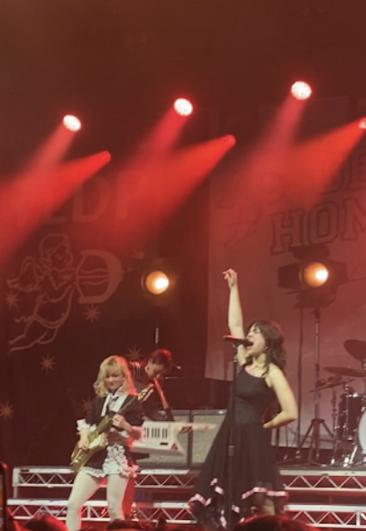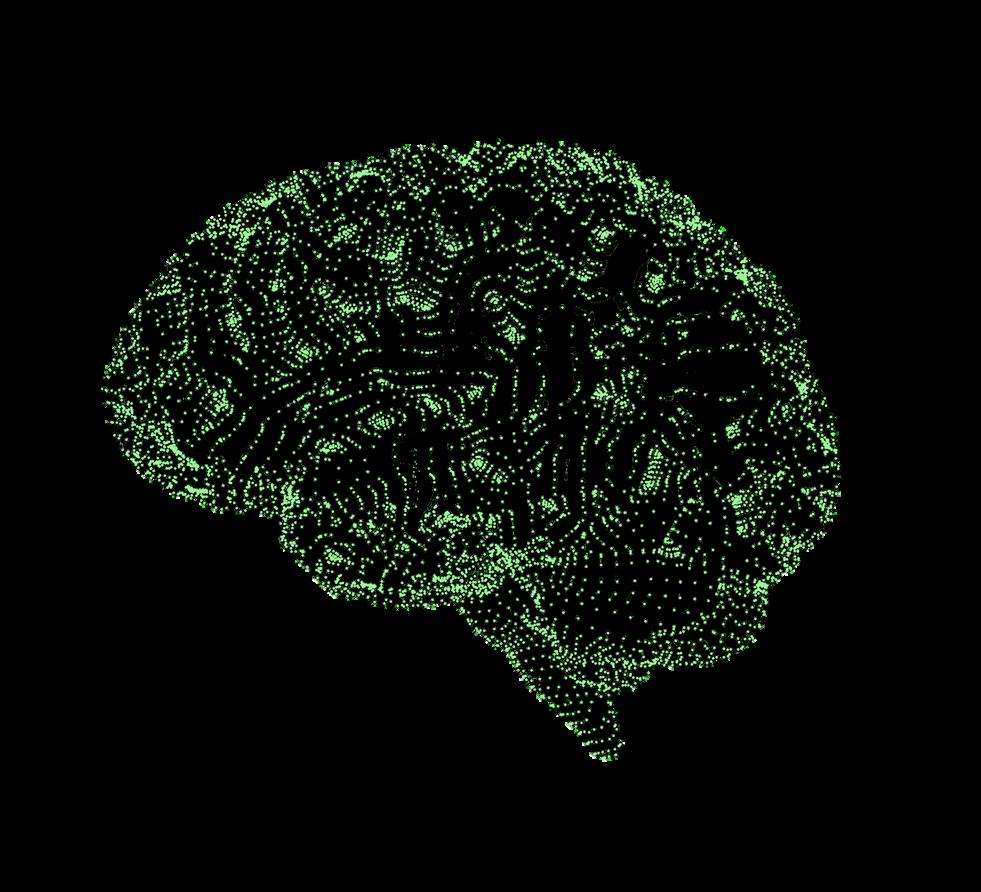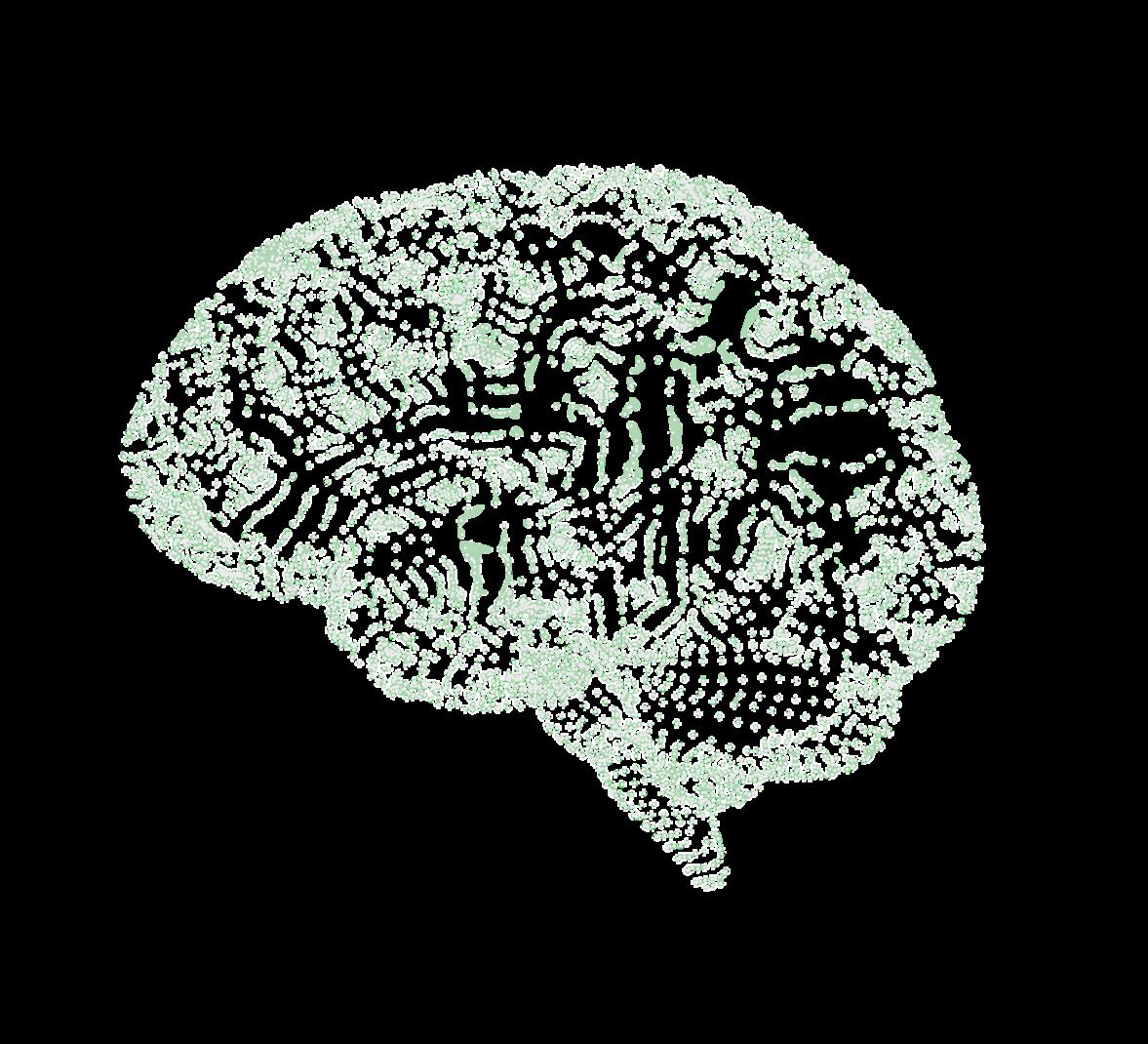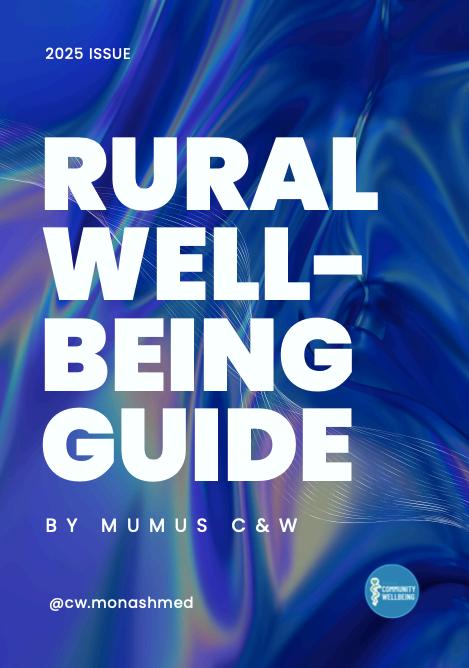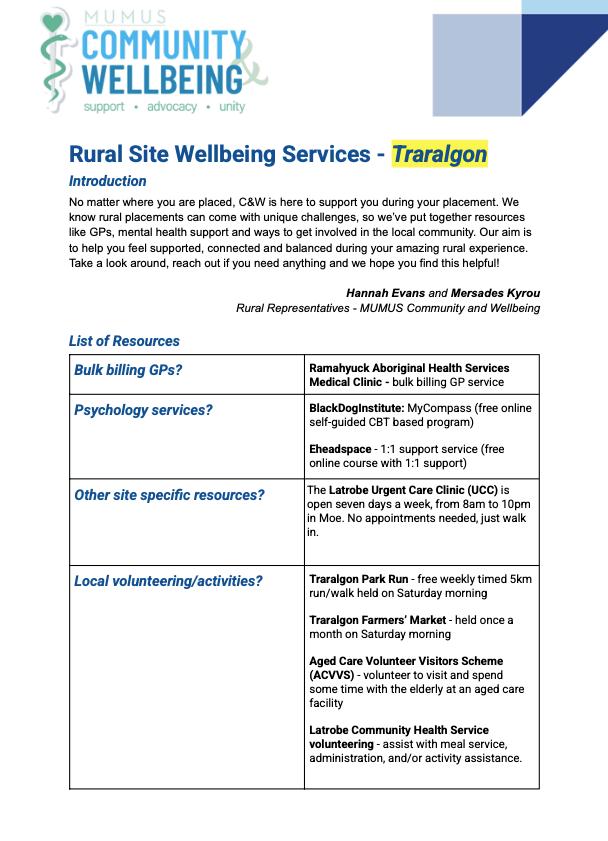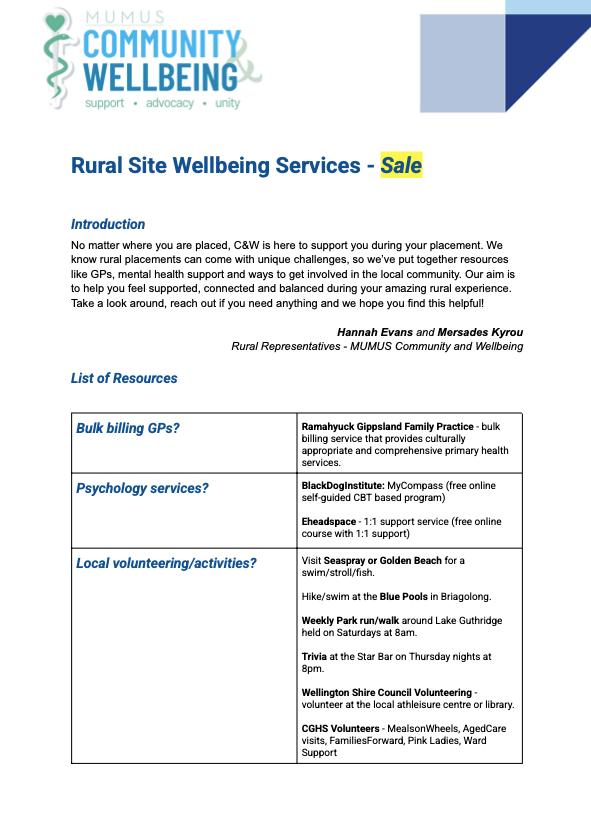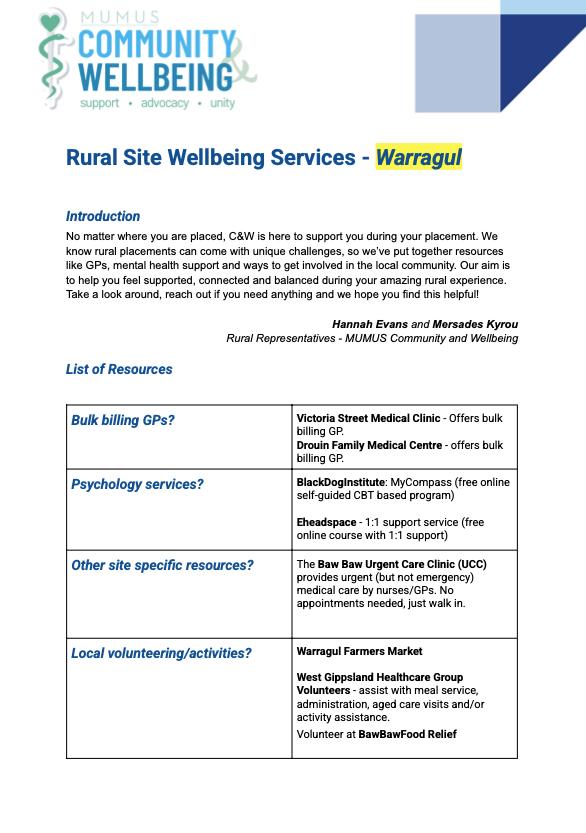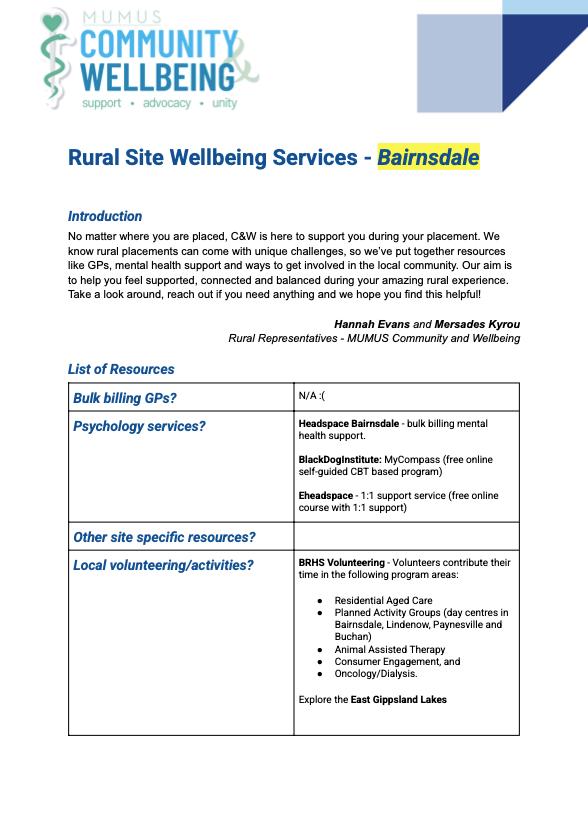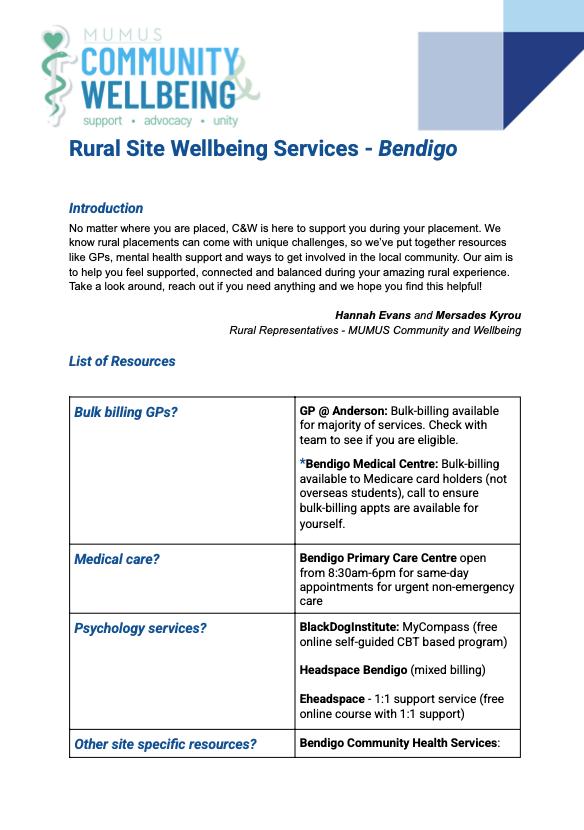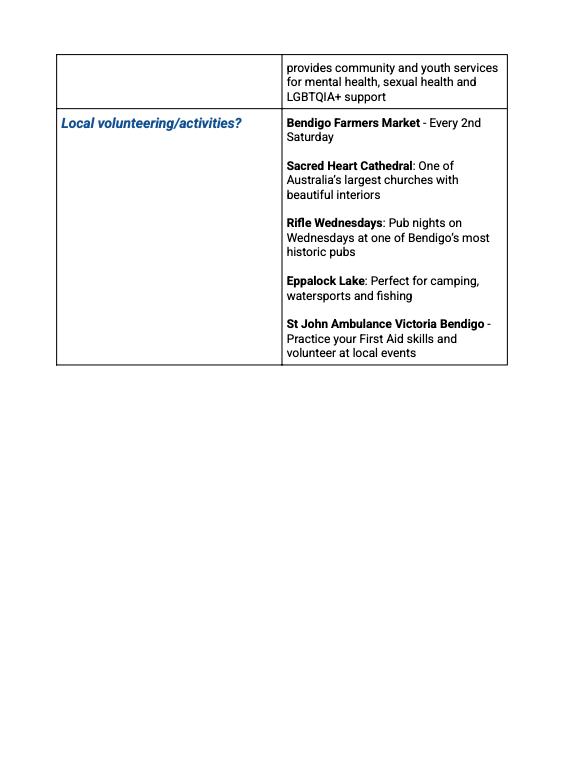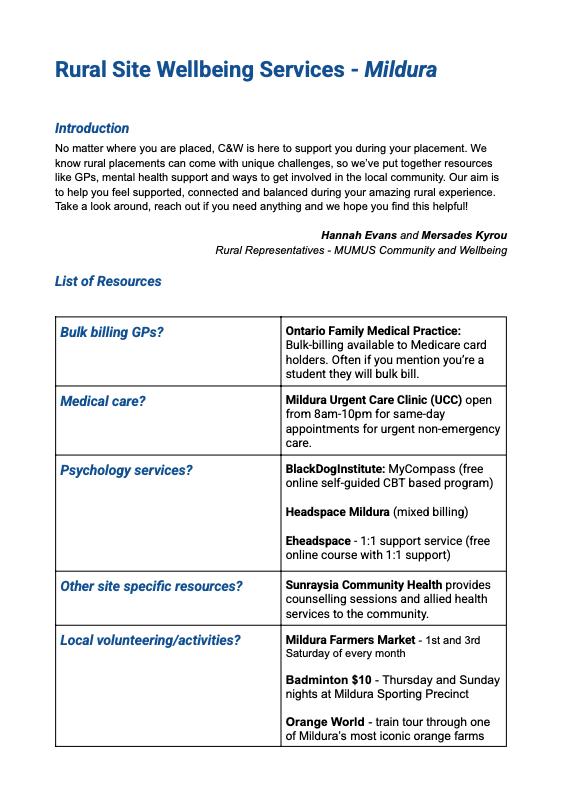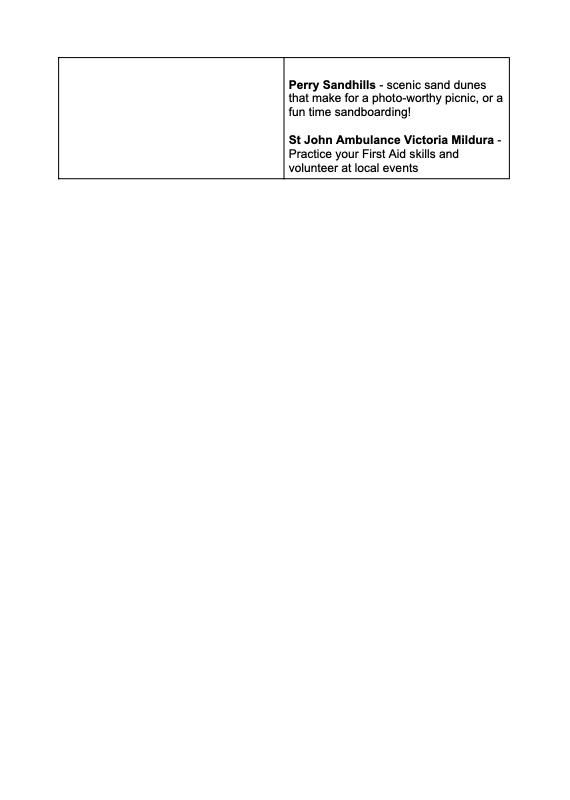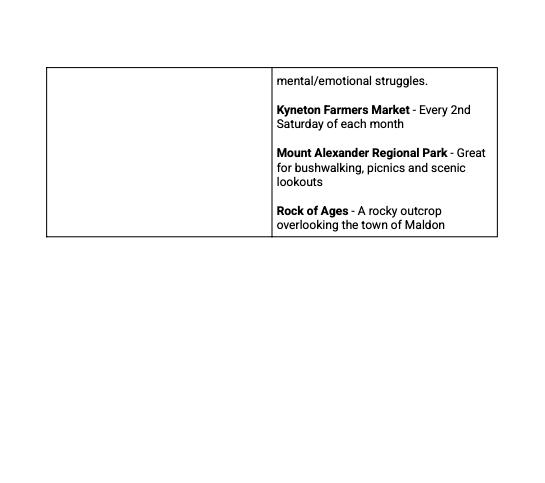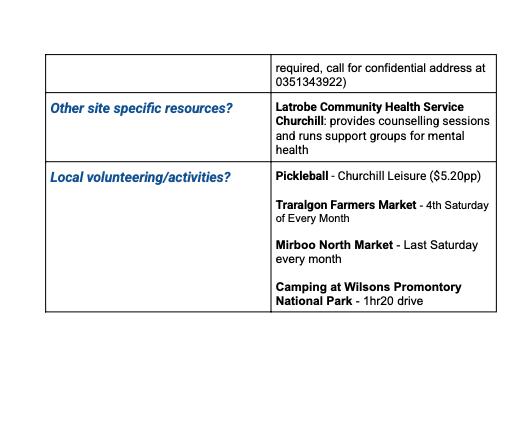AURICLE





E D I T O R ' S L E T T E R
M O N A S H M E D I C A L O R C H E S T R A
A V I S I T T O T H E N G V
S H O W C A S I N G S T U D E N T T A L E N T
H U M A N S O F M E D I C I N E : H U M E R U S H A C K S
M E D I C I N E & T H E A R T S E V E N T
T H E O S S I C L E U P D A T E
W H A T W E A R E R E A D I N G
M U M U S T B H U P D A T E
J A Z Z B A N D U P D A T E
P L A Y L I S T P R E S C R I P T I O N
R U R A L C & W G U I D E
Dear readers,
The year has gone by so quickly ! I hope you are feeling well rested after the mid year break, and that you are feeling ready for your upcoming rotations
To our first years, and year A students, welcome to the Auricle This is our official Monash Medschool Magazine, and it ’ s filled with submissions from our ever-talented student cohort Inside, you’ll find a review of events by some of our lovely societies, including the Monash Medical Jazz Band, Monash Medical Orchestra, and Teddy Bear Hospital Society
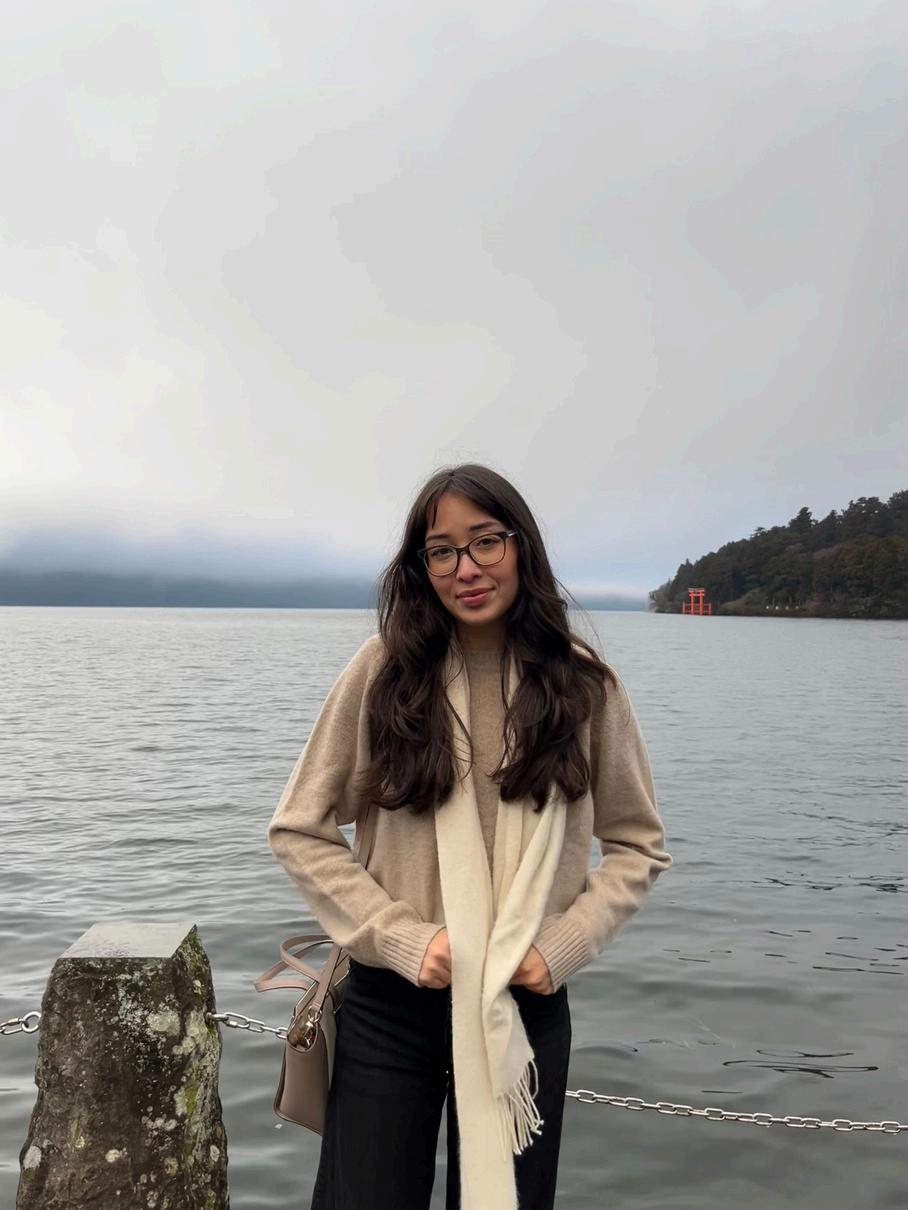
Furthermore, in this issue, you’ll find an interview with Dr Karen Freilich of the internationally renowned medical education podcast, Humerus Hacks !! Not only is Dr Karen a Monash Alumni, but she has had an extraordinary career pathway that I’m excited to share with you via the transcription in this issue, as well as our Ossicle podcast, so keep an ear out for that!
Another thing to keep an ear our for is our Playlist Prescription We all know that medschool involves many arduous hours of study and often very long drives to placement, so we have a student-submitted prescription for a playlist for new music If you would love to share a new song or artist with the student cohort, please email us so that we can add this to our subsequent issues for the year
Angelica is a 4B student, currently on her Women’s Health rotations
Something that MUMUS is hoping to further champion this ear is a continuation of our Humanities and the Arts events, led by Associate Professors Michelle Leach and Deb Leach Look our for some more of these events happening throughout the year
If you are keen to submit anything to our magazine, please send us an email at communications@mumusorg We’re always super excited to share student talent and interest with the rest of our cohort
Happy reading,
Angelica Haskins Auricle Editor in Chief and MUMUS Publications Officer
From wide-eyed jaffies stepping into our favourite yellow container for our first ICL class, to 4th years grappling with placement demands while running the beloved Monash Medical Orchestra (MMO), we ’ ve often joked that MMO is the best subcommittee in med
After all these years, that hasn’t changed This orchestra has gifted us with the most precious memories and shaped us into the future doctors we aspire to be. Where else can one pursue a medical degree, all while playing 4 concerts a year, embarking on regional tours and tackling massive symphonic pieces with 80 other medical students who rock up every Thursday evening, rain or shine, to hone their craft?
It’s now been 15 years since its inception, and our dedicated conductor Robert Dora still remains the heartbeat of our orchestra. Our ever-steady percussion section serves as the vasculature, continuously delivering rhythmic lifeblood and nourishing every section with life. Our strings have expanded into a vast, finely tuned neural network, firing through the 3rd movement of Tchaikovsky’s 2nd symphony like nerve impulses racing through every limb. C3,4,5 keep the diaphragm alive - in a swift diaphragmatic motion, our brasses breathe power and life into the boldest moments of our music, and our windsthey’re the respiratory drive, ventilating the music with soul, colour and grace like oxygen through the body.
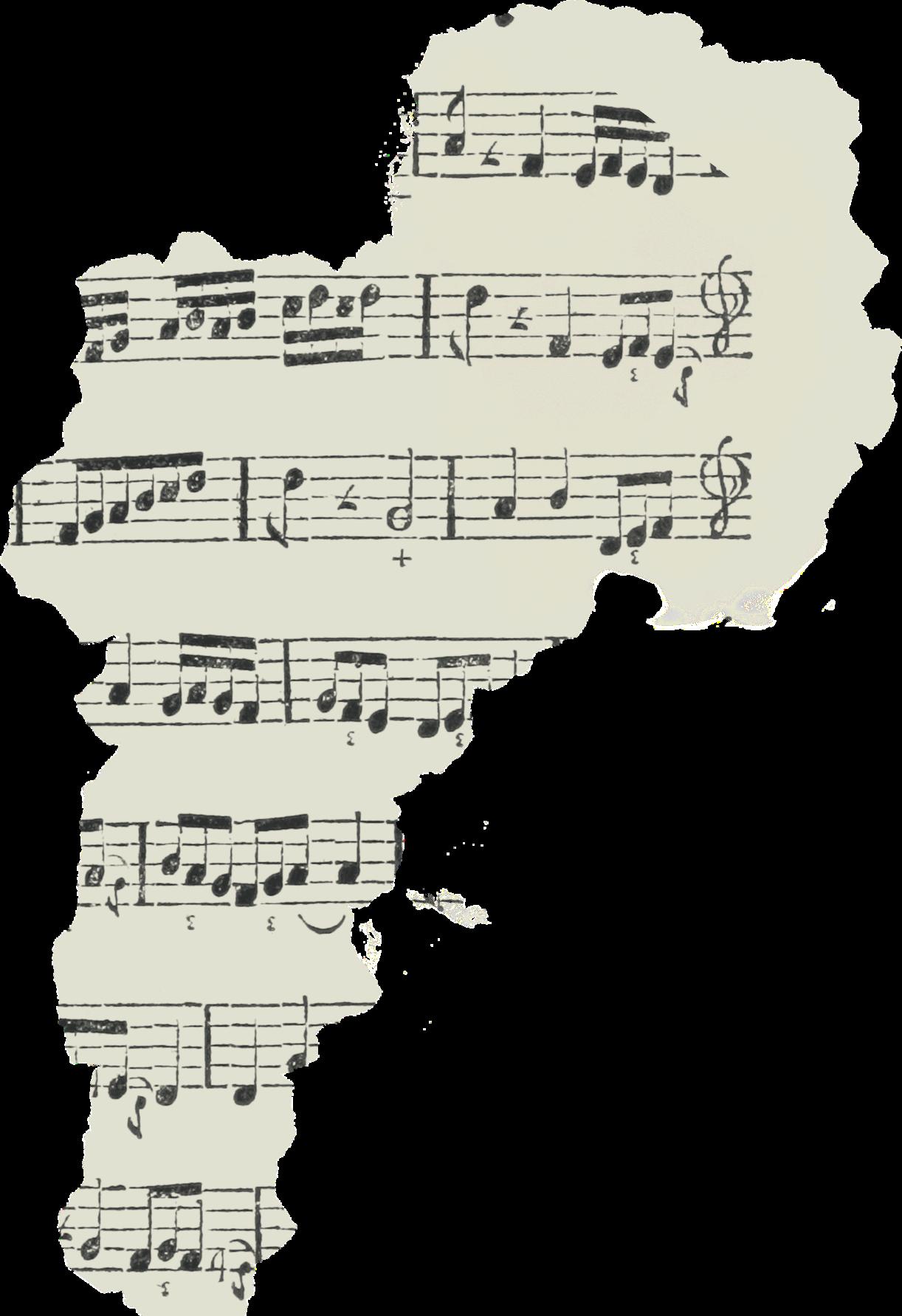
Yet, behind all this musical synergy, it is the strongest friendships and bonds that have held us together and sustained us through the years. It is this sense of community that keeps us coming back for more: 50 people belting out karaoke a weekend before our concert, post-performance celebrations and deep meaningful conversations 2 hours away from Melbourne, spirited games of spoons fuelled by our competitive med student energy, the shared panic when you start daydreaming during 35 bars of rest, and our tireless committee - the true backbone of MMO - planning our next concert late into the night We’d be hard- pressed to find a bond stronger than this - one that sustains us through the rigours of medical school, carries us into our careers as future doctors and colleagues, and lasts a lifetime
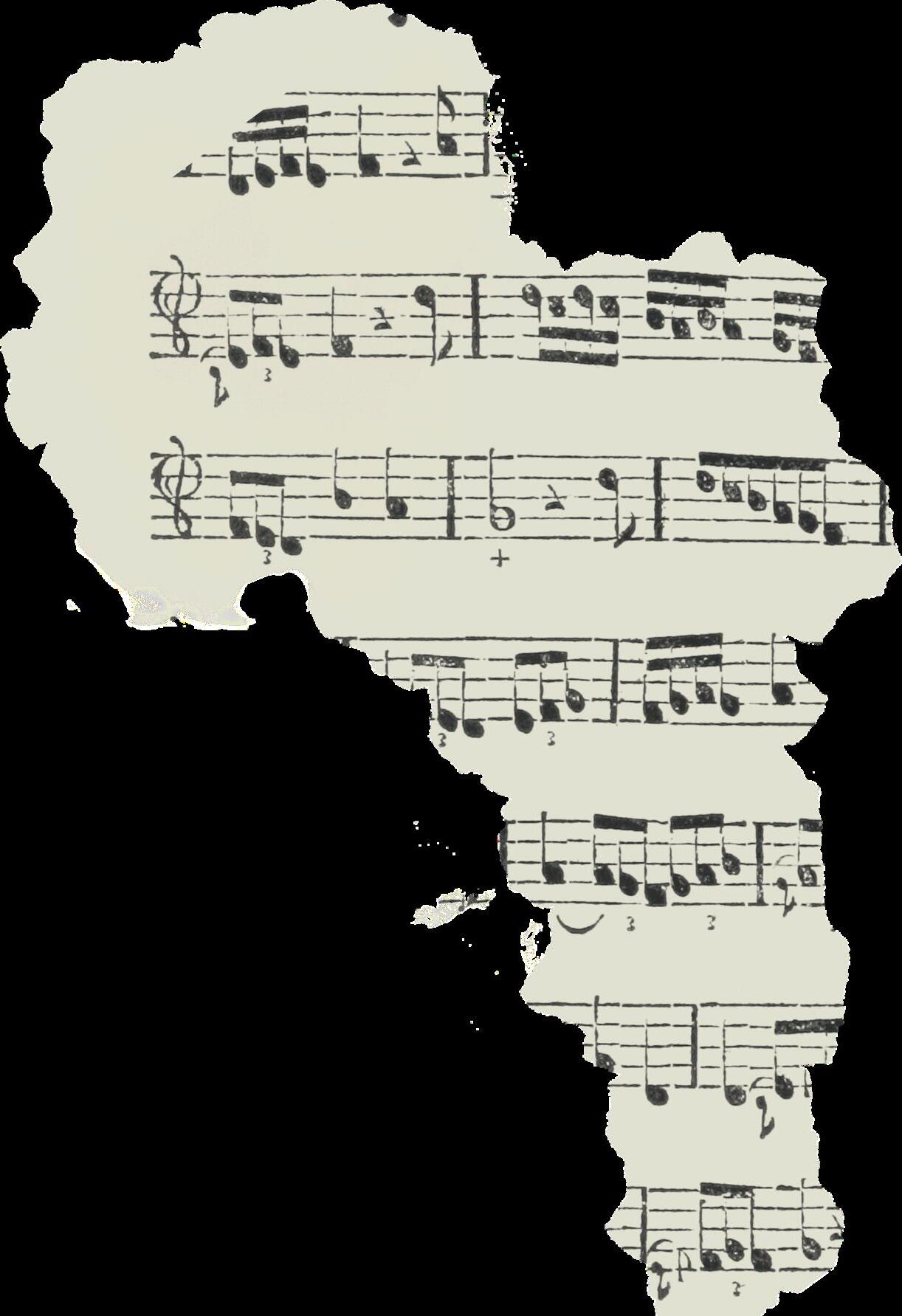
To think that it’s been 15 years since we hatched and grew from tiny embryos to an 80limbed orchestra ready to take on the world - now that’s something special
Anne Thong and Tharushi Walisinghe 2025 MMO Co-chairs
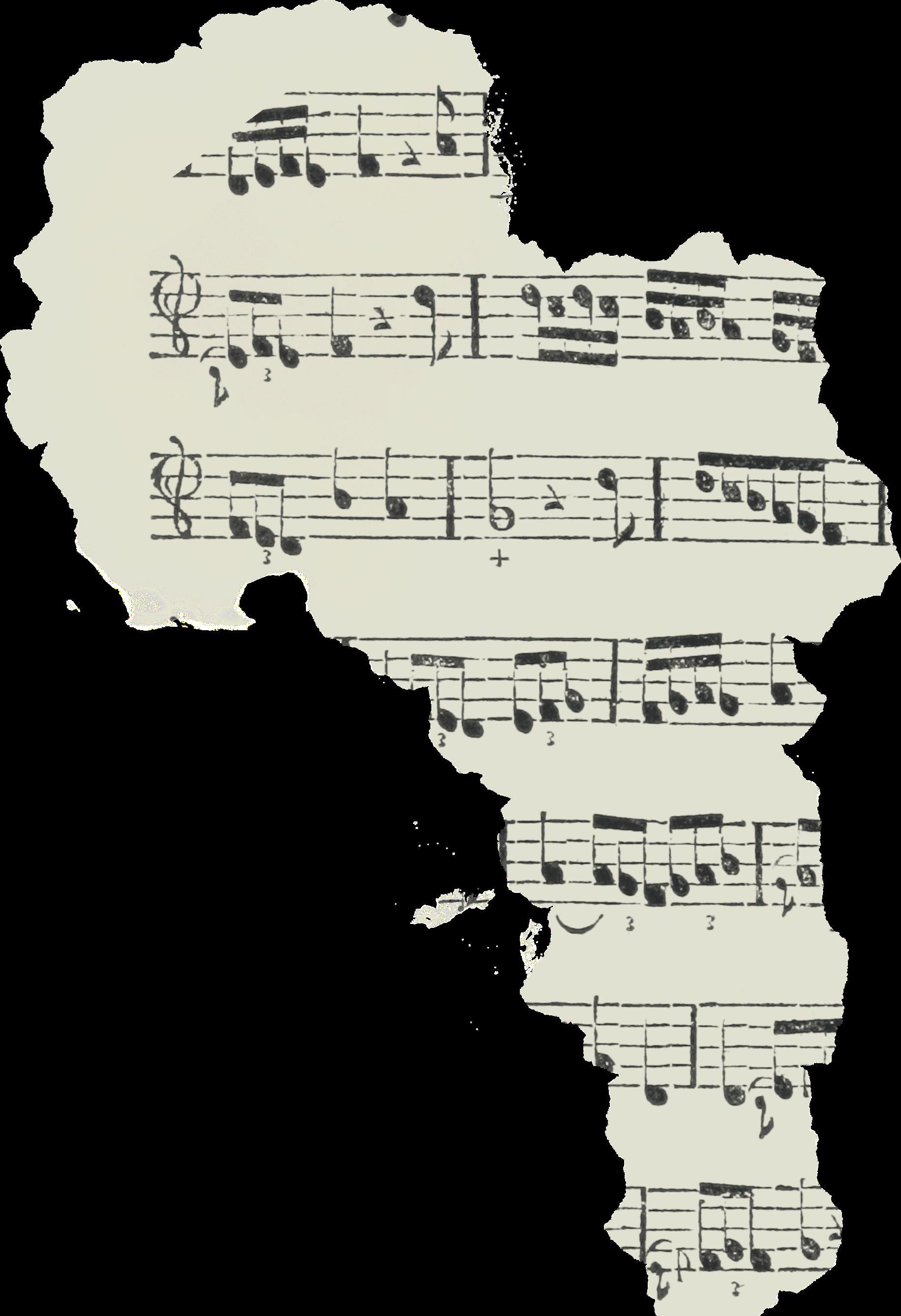
An update from the


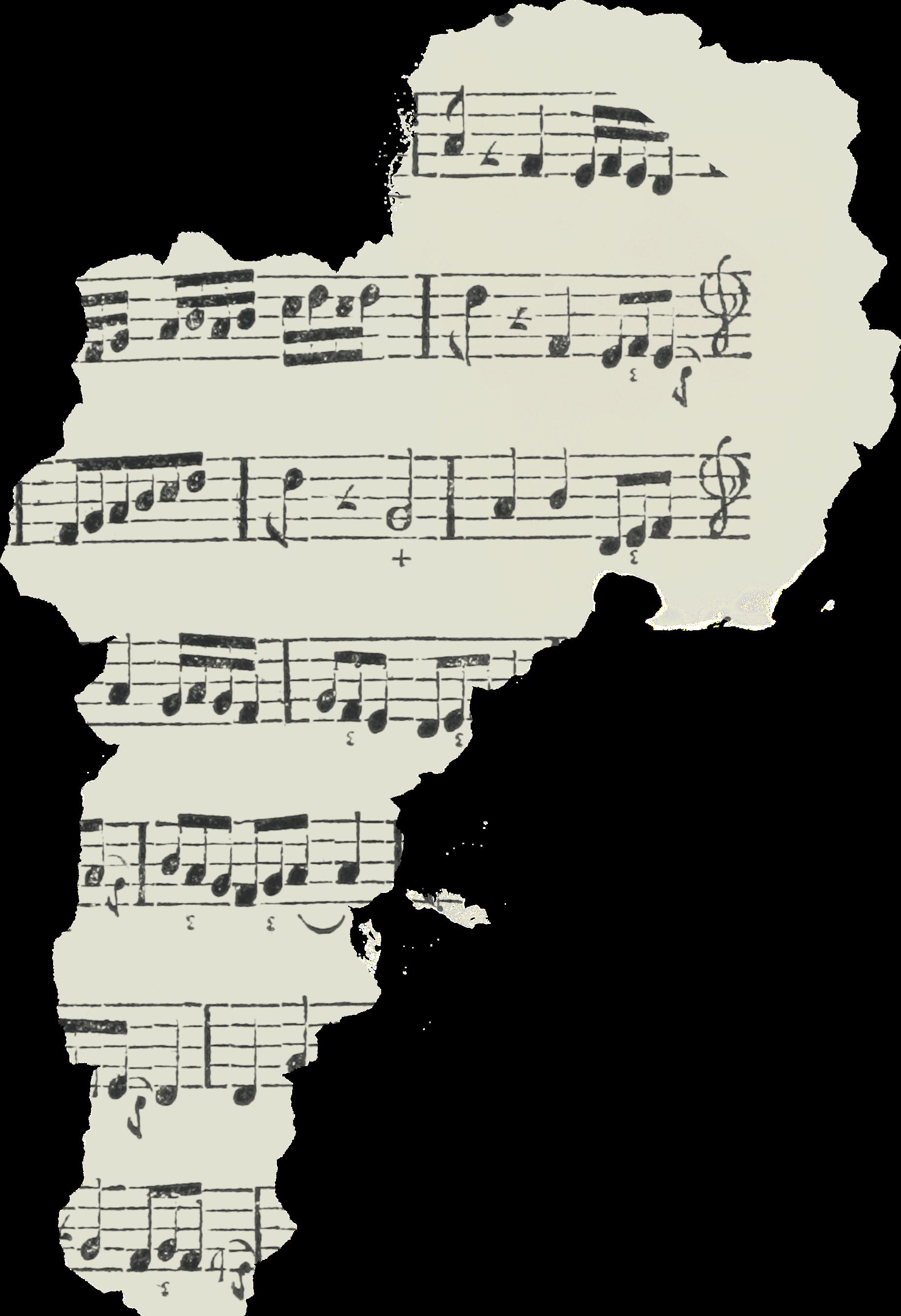
On the 21st of May medical students, and Monash Medicine Faculty visited the Ian Potter Centre at the National Gallery of Victoria to partake in an exploration of Australian traditional and contemporary fine arts
We were lucky enough to lead on a private tour of some of the gallery’s most powerful and aweinspiring pieces, and were encouraged to lean into our appreciation for the humanities and our understanding of Australias illustrious, and yet, often brutal, history for a deeper examination of those who used the medium of a paintbrush and machinery to give voice to those from generations past, continuing and emerging
This experience was a continuation of our Humanities in Medicine series championed by faculty members Associate Professor Deb Leach and Michelle Leech
Previously, we sat down for a fireside chat with Gaia Charan, our former year 5D Community and well-being lead, who spoke about her deep love of writing and literature Gaia has managed to complete a diploma in liberal arts and literature alongside her medical studies and has a strong commitment to continue a writing career alongside her medical studies
Additionally, we met with Dr Paul Biegler Monash Medical Alumnus, emergency physician, musician, journalist and medical writer is the author of the recently published book “Why does it still hurt?” who you may have met in ethics classes Paul described the satisfaction he feels when people who have read his recent book write to him describing how the understanding of pain and pain mechanisms has provided relief and liberation and allowed them to re-engage with normal life
including the editor of the Auricle publication Angelica Haskins Associate Professor Deb Leech was in the audience who has brought the Vanderbilt medical school inspired “Art of the Healer” to Monash Medical School Deb and some of the students Gayatri and Angel spoke about the benefits of connecting with the humanity in medicine and exploring some of the common emotions that emerge when caring for very sick patients in a complex system
Notably, our Cinque Lire cafe event with distinguished Monash Medicine Alumnus Medical Oncologist, Journalist Associate Professor Ranjana Srivastava OAM, author of several books including “Dying for a chat” was one of our most popular events, exploring her remarkable career in Medicine and Writing


In 2025, we are hoping to organise several more Humanities in Medicine events whereby we sit down for fireside chats with past alumni and faculty members who may have chosen unconventional fields of medicine that play into their love, talent and fascination with the arts
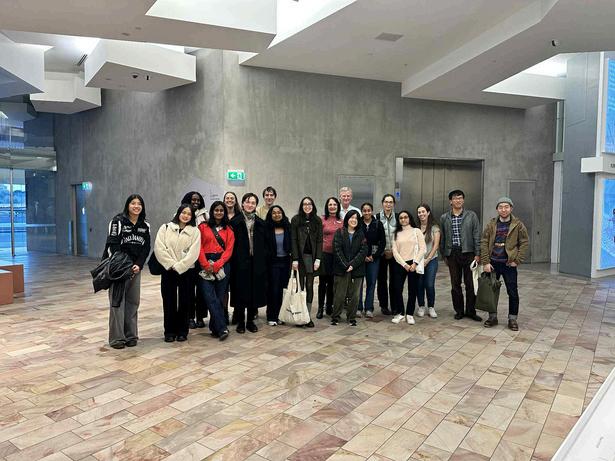
In the audience were Monash Medical students with diverse and genuine passions from writing to performing and music who are seeking ways to connect with others and sustain their passion
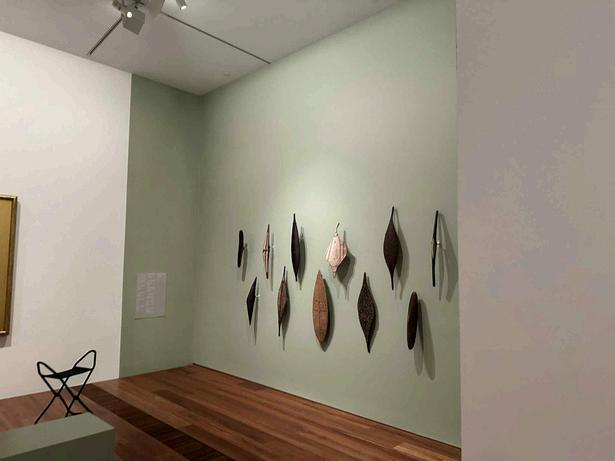
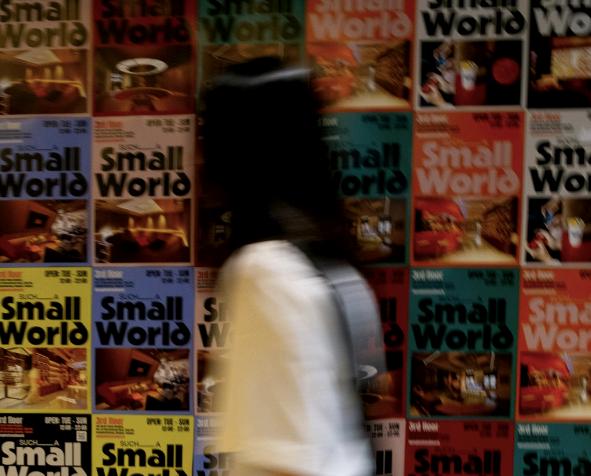
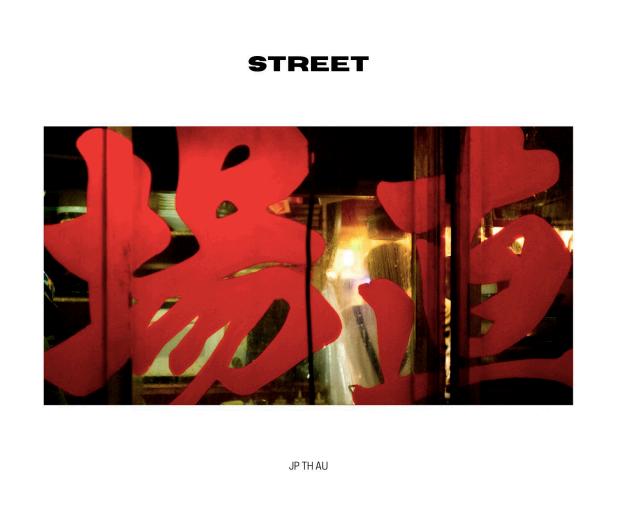

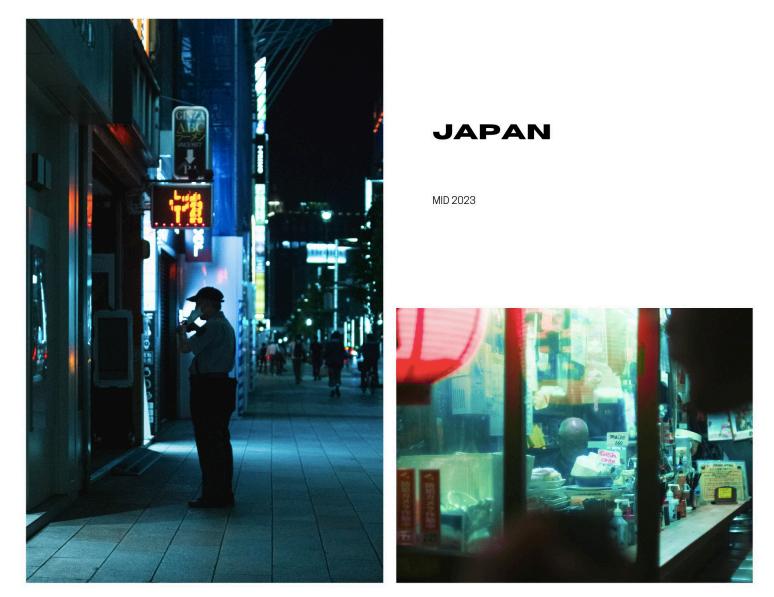
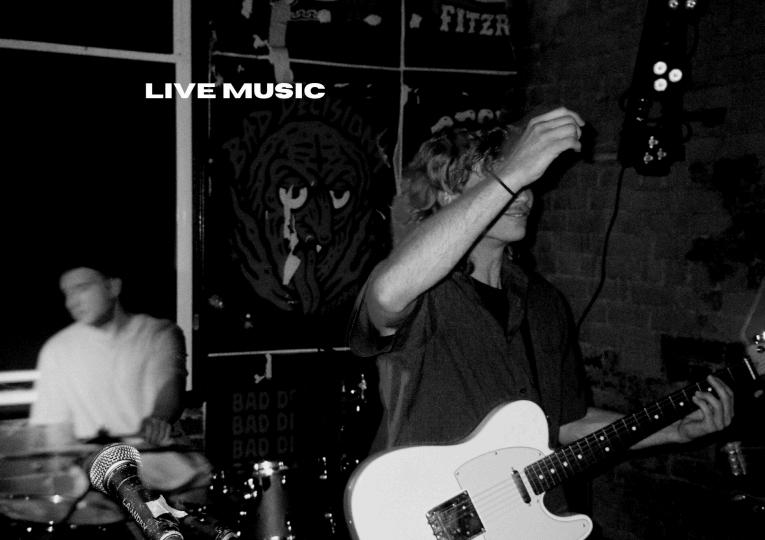
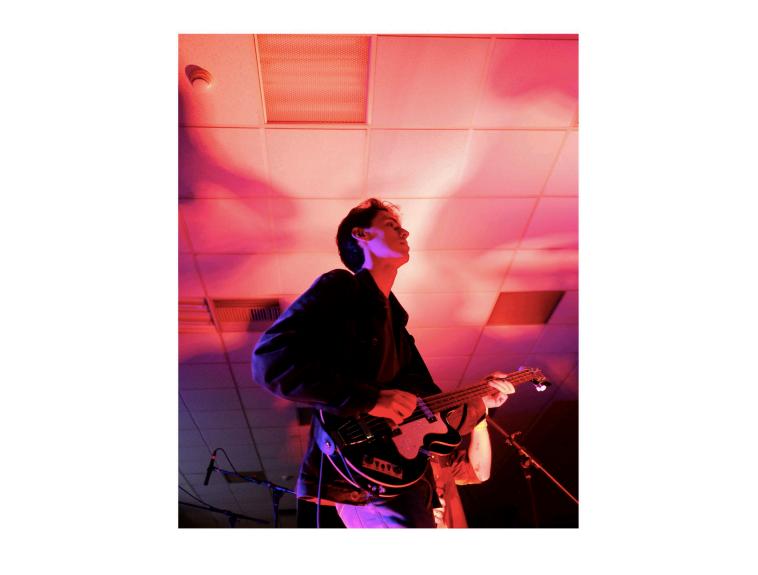

The following is a transcript of an audio interview with Dr Karen Freilich on the Auricle’s accompanying podcast, The Ossicle. Interview conducted by Angelica Haskins.
Hi everyone Welcome back to another episode of the Moo-Moo's [MUMUS} Humans of Medicine podcast series Today I'm interviewing Dr Karen from another podcast series that I'm sure a lot of you guys listen to , Humorous Hacks So for those of you who have not yet discovered Humerus Hacks , it's an amazing medical education podcast series created by Karen and Sarah
Dr Karen: Hello, it's lovely to be here I'm also I reckon in my day it was pronounced “ mu-mus ” and not “ moo-moos ” I am curious by this, has the pronunciation changed over time or does no one actually know how to pronounce it because no one ever really knew how to pronounce it?
Angelica: I feel like it's a bit of a mystery actually, I like moo-moos But I feel like most people say mumus Oh I don't know how to say the one you ' ve said But yeah people kind of switch it up a bit I think

D R K A R E N F R E I L I C H has long since graduated Monash & now practices as a GP
Dr Karen: I reckon in my day it was mu-mus and I always thought it should be moo-moos So I have no idea, but I love that the pronunciation is still under debate because it was always a controversial thing Great name on paper Weird name to say out loud
Angelica: I agree Very true So , onto your podcast
What inspired you to start Humerus Hacks and tell us a bit more about it for some of the listeners who haven't yet listened?
Dr Karen: Yeah, sure So Humerus Hacks, Humerus spelt like the bone, is a medical podcast, and it's aimed for medical students, but really, all health students, talking about medical education topics, but in a way to make it really fun and digestible and really silly Like it's purposely just meant to be an entertaining way to study So the vibe is me and Sarah were studying together as medical students and when we try to teach each other a topic, we just try to teach it in a really like fun and silly way and try to use the opportunity to explain something in a way that our brains could understand
So using mnemonics or similes or stories or metaphors, but distilling things down to square basics And when we were students--me and Sarah went to med school together--and I must say it was started by me and Sarah, but it's been a whole group of people since then But me and Sarah were just studying together Like she would come over to my house like every single time we'd study
We basically always studied together And then we started having a study group So when we were in second year, wed teach the first years, in 3rd year, the second years, when we were in fourth year, wed teach the 3rd years, etc, etc
And we ended up developing a little bit of a, you know, to toot my own horn, a little bit of a cult following You know, so we had like, I think it was at one point, 20 people coming every Sunday afternoon, which in hindsight just sounds so funny But you know, we'd all kind of go to the library and we'd run these tutorials and we would just, you know, say “ everyone, look, we ' re just going to try and teach things in a really simple kind of really fun way ”
And it worked! And we kind of got a little bit, known for having these really silly little mnemonics and then kind of zoom ahead to final you medicine, we ' re still running the study groups and Sarah had a bit of an injury, so she couldn't really sit down on the desk and study
And I was driving like two hours a day to and from placement or an hour and a half at a minimum and we were just exhausted And so we got really into podcasts This was 2016 So I think everyone was getting really into podcasts And there were just no good medical education podcasts out there They were all super dry, super boring, really just well above our level And the med student ones were like just so boring So we were like, screw it Let's let's just basically put the content of our study groups onto the internet But we were really terrified because we really, they were not very G rated

I think they're still not G rate, really like inappropriate, very silly And at the time we were applying for internships So we didn't put our last names on it
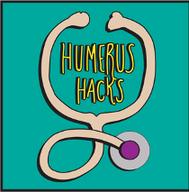
I think we used our nicknames, Kesh and Sesh, or Keshi and Seshi And we were like, oh God, no one ' s going to hire us if they find out But yeah, I mean, who knew this was going to happen but it ended up blowing up and now I can proudly say that it's something I'm really proud of and excited about
Angelica: Oh , such a nice story And like I how it feels like you ' re not studying but you are I’ll listen in the car and learn so much I was an ID recently and they were talking about metronidazole And I was like , oh my gosh! I know that And I just think of a train going underground like the metro [because of the podcast!]
Dr Karen: Exactly ! Cause I think there's textbooks, there's lectures, there's tutorials There's all of this to give you the bulk of information We're just there to get you like here's a word, one association with it, or just like distill it down to its basics We’re there just to supplement things and to make things a little bit more fun and less intimidating
Angelica: Yeah for sure Like I feel like it makes things more digestible
So there are so many episodes. Can you share a particularly memorable or impactful episode from the podcast?
Dr Karen: Okay Really good question I reckon the ECG episode and it was Sarah who one day came to me and was like, Karen, I think I've nailed ECGs I want to teach on a podcast and I just cackled with laughter Cause I was like, how are we going to teach ECGs in a podcast? You know, we ' re only so good really
She said, no, no, look, I've got a vision Trust me on this one And so I didn't hear anything about the episode before we did it We just sat down and she taught me ECGs as though you ' re driving down like a road and the road's going up and down and that's kind of mimicking the ECG And by the end of the episode, I was almost in tears I was like, I get it!
“She said ‘look I’ve got a vision ’ ... by the end of the episode I was almost in tears ”
Like it totally makes sense And I thought about myself a few years prior and I remember when my friend, who I'm actually getting brunch with after this, I should tell him the story, he was like in second year and I was in first year or second year and he was teaching me ECGs and I just wanted to cry in the worst way because I was like, what's going on here? I don't get this at all! And so when we did this ECG episode in the weirdest way possible, it kind of just worked so well and we ' ve had a lot of really positive feedback on it And a lot of people who are like, I just listened to this because I didn't think they'd actually be able to do it, but they could So yeah, it brings me a lot of joy that one
Angelica: And ECGs are killer So I'm definitely going to be listening to that after on the drive back I think Great Have to check that one out So I guess we led into this but

How exactly do you choose the topics and the guests for your episodes?
Dr Karen: Amazing question There is no system I think in the same way that, you know, the whole point of the episodes is to make study a little bit chaotic, a little bit fun, a little bit silly We have the same mantra when it comes to the podcast and there's quite a few people involved now, you know, Callum and Alex and we ' ve had a bunch of guest hosts over the years, Bridget, Jimmy, Karina, there's a whole bunch of people who are involved And the way that we do it is if someone has an idea, we just make that episode; it's not more complicated than that It's driven by motivation, passion and excitement for something rather than anything else Cause I think that's the way that we can stay motivated to do it
I th
e or eve it's kind
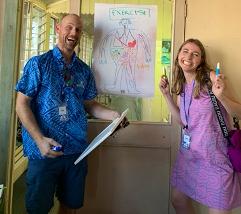
Ang y gy ied through the episode I can tell that you guys are having fun doing it
Dr Karen: Oh, good Cause that's what we ' re doing I mean, sometimes we just won't make an episode for a few months ‘ cause honestly we ' re on night shift, we ' re exhausted, life stuff has come up and other times we'll make, you know, I've got three on the back burner to upload at the moment So it really kind of comes and goes and it's, yeah, it's meant to be a passion project, inherently so Cause so much of medicine is not able to be a passion project
Angelica: Definitely understandable So obviously Humerus Hacks has received like a lot of attention , has this attention kind of changed the way that you use the podcast as a platform?
Dr Karen: It's a two part answer Number one is in one way, it hasn't changed it at all I still think we have the mentality of two medical students, even though I'm a consultant now and Sarah's like almost at the end You know, a group of us that are all in it, many of whom are consultants now, but I think the way we use it is still kind of the mentality of, you know, just a couple of medical students trying to make fun of a topic But on the flip side of that, I do think there's an element of, you know, in a weird way at the end of medical school, it feels like your knowledge has peaked because you ' ve kind of learned a bit of everything and you feel really confident in lots of subjects, but then as you progress, your knowledge becomes really refined So you get really good at the areas that you ' re working in and then the areas that you ' re not working in, you ' re just like, Oh, what? Like I didn't do any anaesthetics at all
So, I just don't have any information about that So it's just really funny combination of feeling like in a way, you know, less than you did, but so much more in other areas, which maybe takes away a little bit of the innocence of it; you kind of feel a little bit more reluctant to make it a bit silly and fun
So, I do have to kind of put a little bit more mental energy into making sure I keep it the way that I want it to be Yeah
Angelica: Cool I like that it's kind of remained consistent throughout
Dr Karen: Yeah I think if we were starting to teach it as people who are, you know, a bit more specialist and had lots of experience, well, that would kind of defeat the purpose The point is it's for students

Yeah And I also don't want it to come across as, you know, we ’ re the big bosses now, blah, blah, blah, because that's really not what it's like: we still have the mentality of students We still feel the same as we did all those years ago So, it's trying to keep that same flavor because also it's meant to be a catalog, you know, it's not meant to be listened to based on the date, though I will say this: I hope pe at

t's
nt, ho
An e'll be like , okay, Im on this rotation Im going to be listen to this episode
Dr Karen: I'll say: medicine takes itself too seriously sometimes So it's also trying to purposely counteract that Yeah
What common misconceptions about medicine have you encountered and how do you address these things?
Dr Karen: I think the most common misconception of medicine is that it's all science and no art and that people think that if you can get the multiple choice question right on an exam, then you know medicine, but it's not that at all Just if you know the right medication to give or the right surgical
procedure or the right scan, well, that's like kind of baseline, right? That's kind of baseline expected But I think the true aspect of medicine is the art of it You know, not just the science, but also the art It's the communication It's a health communication It's the shared decision making between you and a patient and the treating team
It's looking at each individual person and their circumstances and their situation and them as a whole person and making decisions with the patient based on that So that's kind of what I think that people often miss: that once we have that baseline, it's really getting to the art of it
Angelica: I think it's a really important to remember looking at the whole person It's something that we aim to do with this podcast series too
Can you share any upcoming projects that you are excited about for future episodes.
Dr Karen: Oh, great question Well, ooh, okay Well, one thing that I kind of think is very funny is I'm particularly passionate about periods and contraception and, you know, menstruation and sexual health, and it ’ s kind of what I do in my professional life I haven't really seeped it into the podcast I mean, almost purposely try to keep those worlds separate, but I think I'm excited about putting that a little bit more into the podcast I think that would be really fun
I think it'd be really interesting We've made a couple of episodes that, you know, cause I'm working as a GP now, so some episodes that patients listen to like things on antidepressants or a medical abortion, just to get a little bit of understanding about their condition And it's a really interesting thing to decide, you know, when that boundary crosses, but they're freely available

So yeah, I don't know, talking about things that I'm deeply, deeply passionate about now working in that area, but watch this space
What role do you think podcasts and scientific communication play in educating the public about health and medicine as compared to more traditional media?
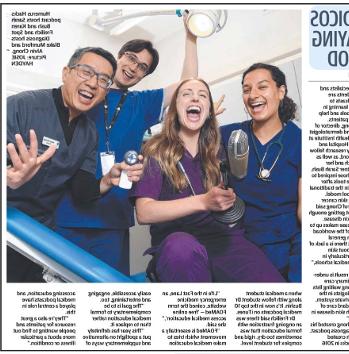
Dr Karen: Look, I mean, there's two different truths that we ' re struggling at once Like truth number one is all health information should be high quality and easily freely available But truth number two is everyone wants to find out about their own health and we'll try to share things that they know
I'll look at tiktoks where someone with absolutely no qualification is giving absolutely BS information about whatever And to my stomach, I feel like, Oh God, Oh my God, what's going on here? But I just need to remind myself that everyone wants to find out about their own body They want to find out about their own health issues Of course, people are going to share that information And I think when you ' re talking as a health provider or someone who actually understands the nuance of a topic, it's a hell of a lot harder to summarize a complex piece of information in one minute
Whereas somebody's on tiktok and just wants to you know, say, Oh, periods are a natural, periods are natural, can do that really easily in a minute ‘Cause there's no nuance and there's no science Whereas anyone with a science background is actually going to spend probably an hour really nutting out the nuance of things
It's kind of that graph of, if you know a little bit, you think you know a lot, but then the more you know, you actually realize, you know, nothing, and it gets really complicated So I do think that anyone who loves health communication, who feels passionate about science communication and feels that they can add a little bit of nuance to the general public is doing a really important role It just tries to dispel myths I do think that there's a lot of inaccurate health information out there, but a lot of people who know the accurate health information are just, it's too difficult for us to share it in a really nuanced way So then of course the
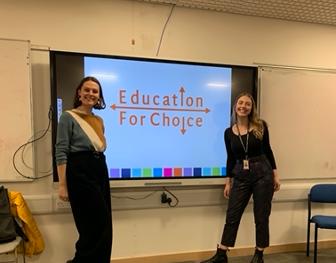
Angelica: So hard to tackle, especially because it feels like nowadays people are more attracted to very short little sound bites or things that are very click-baity and it can be hard to get all the nuance into it
“all health information should be high quality and easily freely available and... everyone wants to find out about their own health”

Angelica: We've got two more podcast-y questions and then a few quick fire about you as a person outside of medicine
So, what is your relationship with your audience like?
Dr Karen: Well, firstly, we ' ve got an incredible audience, like just an amazing audience I think we have about 250,000 downloads at the moment So something absolutely incomprehensible and insane So just a huge audience, mostly in Australia, but like all over the world So when I just look at the stats, I'm like, where, how did you listen to this? How did we get this? We have a lot of DMs and emails
We get a lot of Instagram or Facebook DMs asking for episodes and actually just sending us some really, really gorgeous messages I've collated some of the messages somewhere But they're really, really incredible messages Like sometimes they're from patients or people who are not students who are just saying, look, I listened to your episode and it's for that reason that I'm actually considering that I might need antidepressants and thank you for helping me make that leap But other people, it's students who are just saying like they're really stressed and overwhelmed with medical school for every reason under the sun And the podcast just made studying a little bit more palatable and a little bit more enjoyable
And for them, that was a huge game changer And for other people, it's just people sending us jokes that they think that we'll enjoy, which I love as well, but we get so many messages and it just brings me so much joy, really, really so much joy One thing that I think I always get a kick out of is me and Sarah and Callum and, you know, all the team that have been making quite a few episodes over the years will be in hospital in the middle of like a Met call or the middle of a clinic Cause some students will tend to be like, wait are you from Humerus Hacks? And I will never get over that, but it's always like at the exact wrong time It's really funny, but we do enjoy it
Angelica: That's crazy That's so good Now remember I was listening to it and I realized you guys are from Melbourne and then I was like , wait a minute You guys are from Monash? I don't know why I didn't pick up on that es al a it,
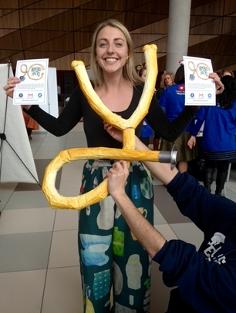
And they'll realize why So yeah, yeah But unsurprisingly, you know, all of us who work in the area have all kind of gotten into formal teaching roles, you know, and lectures and tutors because of course we ' re really passionate about it So it's not that surprising, but I think people always get a bit like, well, wait, what?
Angelica: That must be like so nice to reach patients or students going, this has helped me in some way
Dr Karen: Oh, it's so nice And you know, I'm always conscious to tell patients about it So I usually don't, but sometimes my patients have found it and we ' ve got episodes on things like BPDs, the borderline or ADHD or antidepressants And in particular some really difficult mental health information and sometimes patients find that really useful and I feel quite proud of that

Angelica: Yeah , it was so wonderful Okay, last podcast related question This is actually from my boyfriend who's not in medicine , but I’ll be playing your podcast in the car and he'll be like , oh my God , we ' re listening to this again? But I'll catch him singing the song just around the house
So, can you tell us how you guys came up with the song?
Dr Karen: Firstly, kudos to your boyfriend for putting up with listening to a Humerus Hacks episode despite not being medical That is wild to me That is so crazy That's so lovely He's clearly very supportive Good for you
Well, Sarah's a musician Sarah's crazy, crazy talented She is a musical genius She wrote the song She performed the song with her band and just put it together in the actual recording studio with a couple of other friends who are in a band with her She sung the original version, which was, I think, recorded in her bedroom And then she got one of our friends, Josh, to do the recording because he's got a voice of gold And we ' ve been using the song ever since because it's really good But yeah, it's pretty legit It's a great song I love it
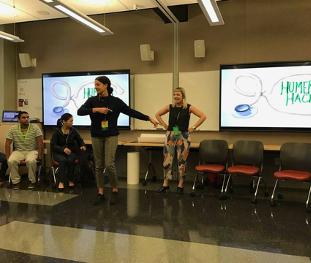
another friend of ours is a graphic designer
And so she just kind of helped kind of refine it and put it together So we ' ve, we ' ve really, it's been a whole community effort and we ' re really appreciative of everyone who's contributed
Angelica: I love that And I had no idea Oh my gosh New appreciation Even more appreciation for the song and the art
Dr Karen: Well, even to this day, you know, a lot of the art for the episodes, we ' ve got Isabelle Posse who makes the most incredible, incredible artwork Someone new, David, has popped on board and has made some artwork for us as well
And I think because it ’ s kind of just the feeling of some friends studying in, you know, someone ' s living room It has kept that And, you know, it's not monetized It's really just a community effort and we welcome anyone who just wants to jump on board and be involved and make art and do creative things And I think it's really enriched the whole community and the whole podcast and, you know, it makes it feel like a really relaxed study group, which is exactly what it is and what I hope it remains
“it's been a whole community effort and we ' re really appreciative of everyone who's contributed “
Angelica: Yeah , for sure I love that Okay A few questions about your life as a doctor
So can you tell us a little bit about your journey in in through medicine?

Dr Karen: Yes, absolutely So I'm now a fully fledged GP, which is crazy So I'm all finished now, which is great I'm PGY eight I think it means I've been out of medical eight years, which is around the same time that Humerus Hacks happened because that was our final year of medical school
That's a good way to remember when I actually graduated So, I have kind of three main gigs I'm a GP mostly mostly doing sexual health I also work as a sexual medicine and therapy consultant So working in the sexual medicine and therapy space So a lot of erectile dysfunction, pelvic pain, vulvodynia, and that's a public hospital position And then I also teach at the universities
So teaching lectures mostly in sexual health and GP related topics So that's kind of the lay of the land of my career I feel like I've hit the jackpot I feel so, so, so lucky I'm just absolutely thrilled with how everything's worked out
During my junior doctor years, I did a range of things I was in absolutely no rush I just wanted to try a lot of things and see what I liked I had an idea that I always loved sexual health
I was really passionate about it, but wanted to spend some time doing the round So I did a bit of obscine I did a bit of kind of med regging did a lot of night shift And I also took a year off and did a Masters of sexual health in the UK at the London School of Hygiene and Tropical Medicine
I said, I really wanted to take a gap year and a year off and kind of doing a Masters is a very medical version of a gap year Isn't it? It's just kind of feels like a holiday, but it's not It's doing a degree, but it means you ' re not study You're not kind of working as a doctor for a year
I T H
And I highly recommend it to anyone who has the availability or the capacity to take six months off or a year off Best thing you could do, just seems to out of this world And yeah, it's been a great career I love it I mean, you know, it's funny to listen to an episode in Humerus Hacks and suddenly have a GP tell you that you should be a GP I mean, I think the trope of GP is that we ' re telling everyone else to be a GP
But I absolutely adore being a GP It's a phenomenal, phenomenal job And I think Humerus Hacks has lent itself really well to that It's a lot of science communication It's a lot about talking about things and making it easy to understand for patients and making shared decision making, which is all about communication And it's also explaining to people their options of what they can do or should do, but in a way that's palpable and understandable for them So I think it lends itself really well And I have extremely high job satisfaction
Angelica: Well , that's so wonderful to hear I feel like science communication , whether it's physically writing or speaking it and being a doctor who's talking to patients every single day, works so well
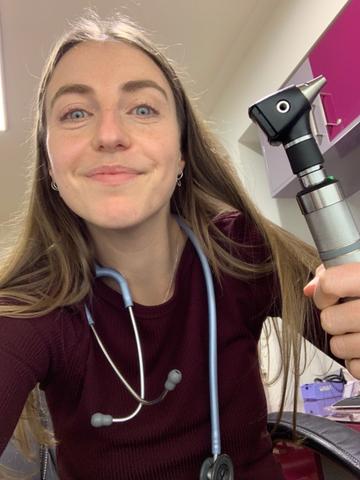

Angelica: So what influenced you to lean towards sexual health do you think?
Dr Karen: So I’m a GP with an interest in sexual health I spent quite a while trying to decide I think one of the biggest mistakes that students and interns can make is honing in on their specialty really early on
You just don't know what you like I mean, one piece of advice that I got really early on is that working in hospitals really cool and really interesting and you ' re surrounded by lots of people There's a lot of drama You see really interesting things It's dynamic You're going to met calls You're delivering babies
It's like go, go, go You've always got an amazing story But just because it's a fabulous and interesting and wonderful experience doesn't necessarily equate to you wanting to do that for your career And I think they're very different things So some of the things that I absolutely loved in the hospital, I had to kind of think do I love it because it's genuinely objectively really interesting Like, you know, why do we think that scrubs and house and all of these TV shows are interesting They objectively are versus what do I actually what will actually fill my cup doing something for a career long term Because the junior doctor years invariably finish and you know, you ' re either going to work in a hospital full time or a couple days a week, but you might be spending clinic out somewhere So I was trying to think of what really filled my cup and what I loved is I loved everything, but I really loved sitting in a clinic and just talking to patients
“But just because it's a fabulous and interesting and wonderful experience doesn't necessarily equate to you wanting to do that for your career “
So speaking to them about what they wanted what they needed and kind of connecting with people and their individual stories again the art and not just the science of medicine and combining the two of those So, yeah, I also found that I really didn't love the adrenaline, you know, we'd have some really tricky deliveries of babies and afterwards, you know, things would go well and it would be like really interesting intellectually stimulating amazing But afterwards I just feel a bit like, oh God, that was, I don't need that a much adrenaline I think I much prefer to just have a more office based specialty
That's not work for me And then I was kind of thinking a lot about, you know, when you ' re doing a specialty, people are going to ask me people are going to be asking you about those things all the time So if you do endocrinology people are always going to be speaking to about diabetes and thyroid right So you need to be really okay with speaking about those things all the time
I loved sexual health and I wanted to speak about it all the time so GP and with an interest in it worked really well for me And I just think it's the best job I love it
Angelica: Amazing We start GP next year
Dr Karen: Oh, nice Oh, good, good, good I actually hated my GP placement as a student to be honest with you Yeah, I just really didn't like it I was really bored
I had to drive hours I think I mean, it was a great clinic and a great GP I just, you know, it wasn't the right fit
“I actually hated my GP placement as a student to be honest with you ”

They were doing a lot of skin and it really didn't really fit how I saw GP practice So it was only years later that I was like, I want to redefine how I want to do it
Angelica: Oh , that's great to have been able to change the way you see it
So how does scientific communication present itself in your daily practice doctor? I feel like we ' ve talked about this a little bit.
Dr Karen: Oh, yeah Well, obviously in clinic a lot and I do a lot of sexual medicine and therapy So that's especially communicating things like pain education and sex therapy education, which requires a lot of like, dulling down and simplifying concepts that are really confusing and hard to understand But I also do a couple of fun little things on the side So occasionally on ABC radio doing some science communication on breakfast radio with the comedian Sammy J And that's really fun You know, they'll call me up and say, can you talk about tetanus shots? Can you talk about whooping cough? Can you talk about, you know, whatever And so I have to kind of use those skills to the general public But also I've been on some videos for universities with the Cancer Council to try to explain some concepts to the general public So using those skills for a general audience as well has been really, really fun
It was something I was always kind of hoping to do but never really pursued and it's just kind of fallen into my lap And I really love that as well I think it's fun to be able to become a quote unquote expert in a field but also be able to communicate with the general public
Angelica: I think that's so fun especially because some of the sexual health topics can be difficult for patients to navigate or seek out information or it can be that anxiety inducing So I think it's really nice that you ' ve managed to approach it in a more accessible way
Dr Karen: Yeah, I made a little TikTok about how to do a self collected pap smear I think it's got like 250,000 views or something like that So there's some people who are kind of turning up and saying I saw the TikTok and I want to self collect and it's all because of health communication So it really does bleed into clinical practice really well
“I think it's fun to be able to become a quote unquote expert in a field but also be able to communicate with the general public“
Angelica: That's amazing And I have definitely been seeing like , like TikToks or reels about , I don't know , just increased awareness about sexual health issues Like I think in America they're starting to have increased awareness that how painful IUD insertion can be So I definitely think social media and platforms like TikTok have a huge role in influencing people's education about medicine
Dr Karen: I actually made a tick talk about pain with IUD insertion literally last week So let's see how that goes
Angelica: Exciting! Okay, a few more
What's a moment in medicine that's just left a long lasting impression that you often think about?
Dr Karen: Ooh Like just in my career or in my experience?
Angelica: Either in med school or in your career Anything that kind of sticks out

Dr Karen: In terms of things that have made a lasting impression, I might talk about, well, sexual medicine and therapy So when I was a final year student, I had a gynecology placement and I knew that in the hospital that I was at, there was a sexual medicine and therapy clinic And I thought, God, that sounds really interesting
I'd love to see if I can go to it I wasn;t doing placement there I was doing something different, but my rotation was tangential and I was a final year student So I had like a bit of flexibility and I basically went to my rotation and I went to the clinic and I just said, well, can I sit in here a couple of times? Can I just like see what it's like? So I was fully transparent It was a bit of logistics I had to kind of do a couple of like, you know, questions and speak to the powers that be But I just went up to them and said, well, can I sit in and I just loved it
I've never seen anything like it It was really unique and interesting and just really blew my mind about how we could speak to people through a kind of a medical and therapeutic lens and using the combination of medications and therapy to help people with really specific issues And I loved the clinic so much And it's funny because zoom forward eight years time, I'm now a consultant at that clinic and I'm working at that clinic And it still baffles me that that ended up happening with my career
I feel extremely lucky But a lot of that was just saying, okay, well, what's my intuition leading me towards what sounds interesting? Where's my gut taking me? And what can I do to pursue that? And what can I do to say, okay, well, I'm really interested in that I want to connect with the people doing it I want to try different things out I want to sit and use the time as a student to experience things And then over the years, see what I can do to enhance my skills and my career, you know, in my training to get me at a point where I could be, you know, eligible to work at a certain place
And yeah, I feel really lucky It’s a good lesson that I often tell students that if there's something that you ' re interested in, look at the people doing it See what you can do in your spare time, sit in with clinics, explore things, see what's out there

r fingers and youre a consultant and you have no idea when a job is going to come up in an area that you ' re interested in
Angelica: That's such an amazing story A very full circle moment
Dr Karen: Very full circle moment
Angelica: That's great So nice how everything just fell into place
Dr Karen: Definitely I feel very lucky And a really important lesson to the full-year interest
Angelica: I feel like we ' re stuck in these strict, like, rotations and things But I've often found that if you just ask someone, you can often go and seek out things that you do enjoy
Dr Karen: 100% 100% And look, I mean, I've said this to students before, whereas, you know, if you go on uni holidays or on a break, you ' ve got a day off, going to a clinic that you find really interesting or joining a surgical list that you find interesting And on the one hand, yes, absolutely enjoy your time off Use your time off

Just go to things But also, the moment you start working as a doctor, you have no time off So when you ' re a student, you have that flexibility to just spend a couple of hours in seeing a clinic that you find interesting, which can shape your interest in your career and give you a really good understanding of what you like So you may as well look into those things
Angelica: Yeah I think that's a really h t
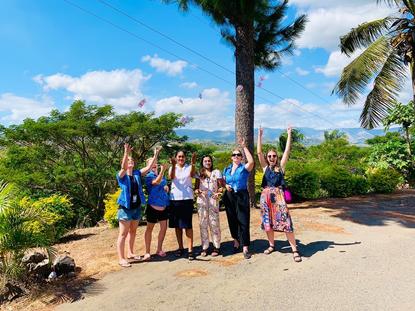
Dr Karen: I loved how social it was I loved just doing study group with everyone It sounds so lame to just say it now, doesn't it? But I just have all these most wonderful memories of having a two hour break between tutorials or placements and just sitting in the hospital common room and playing card games and people bringing in food and like teaching each other things but also just having fun and sharing anecdotes and like it was such a fun social, you know, everyone was there together and it was it was just so much fun I remember in third year, my study buddy, you know, the person that I was, you know, buddy up with to be on my third year placement with me is to say he's still one of my best friends and it's been, you know, over a decade and the connections that you make in med school really just last a lifetime Because you I mean to joke you kind of trauma bond a little bit, let's be honest, but the chaos of just spending all day every day with people learning and studying together is so fun and those connections last forever and it kind of warms my heart thinking about it
Angelica: I definitely think there are things you experience in school and it's hard to explain it to your family, people outside of medicine, you just kind of feel united in that way with people who you are studying with or going in hospitals with
Dr Karen: 100%, also the people not doing medicine don't really want to hear about it It's not even care It's just that you know, I think when people in medicine, it can be very like blah blah blah hospital hospital hospital, whereas like you'll have your med friends to talk about all the medical related things and you have your non med friends to kind of remember that you ' re a person outside of medicine
Angelica: Exactly
Okay, so quick fire human of medicine questions Yeah What are some hobbies that
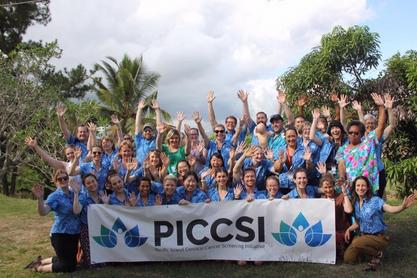
Dr Karen: Such a good question Me and my friends used to debate this topic so much because in all our kind of job interviews and mentioned interviews and intern interviews, they were always like, give us a hobby and we would kind of just laugh because we kind of get together and be like, well, our hobby is just hanging out with our friends and can't that be a legitimate hobby Sometimes medicine wants you to have like a, oh, you ' re a, you know, you ' re a, you ' re a chess champion or you ' re playing like volleyball at premiership level and get good if you do But sometimes a hobby can just be hanging out with friends and that's also very legitimate

Now, mine would probably be that or traveling to festivals, hanging out with my friends, going out for food Now, probably my cat is my number one hobby I just love her so much and would spend all day every day with her Actually, as I record this, she is not sitting on my lap and that's pretty devastating, but that's fine She's probably sick of me and also obviously making this podcast But yeah, I, I reckon I kind of am purposely distilling it down to my number one hobby is my mates

Angelica: No , that's so legit though Because like if you ' re asked in an interview , I want to stay, well , going on a walk well that doesn't sound serious enough Like you need something that sounds like I don't know professional
Dr Karen: But really, at the end of the day is when you have some time off, what is the thing that you really enjoy? And for me, it's seeing my friends and other people, and crocheting too I must say I do love crocheting There's a lot of things, but yeah, that's probably what I love the most
Angelica: What kind of advice would you give to your younger self?
Dr Karen: Oh, okay Always a hard one Okay Well, I would say download the Google Calendar app way earlier in life It is the best app ever You can color coordinate it, you can put in all your things and you can just like put things in your mind of, okay, what do I do? What's happening here? And just like put it in an app format I mean, it sounds so incredibly simple, but when you ' re in med school, there's so much chaos of like placements and rotations And I think I was holding down three jobs the entire way through med school And I just have no idea really how I did it and how I organized it with without a good app system I kind of look back and I'm like, how did that happen? Was my memory just really good?
I have no idea But I would say get a good Google Cal and buy the same token I think it all feeds into the same thing is the whole you ' ve got to put your own seatbelt on first and nourish yourself first and prioritizing things like eating and sleeping and, you know, cleaning your room and organizing your own life is so inherently important because once all that kind of first layer mesle's hierarchy of needs happens, then everything else can just build upon that Yeah, I mean, I was pretty good at it, but there were times that I just think, how did I, how did I just knock on the supermarket for like a month at a time?
Angelica: Google calendar is a lifesaver I've liked it It's mandatory like all our placements are on So they kind of forced us to use it now which is good because I wouldn't have used it otherwise
Dr Karen: But that's so good because you can even put like little reminders in or put things in and it can kind of, you know, help you just conceptualize your time because its one thing you

just don't have as a medical student, which a lot of other people in their early 20s or late 20s or whenever you do medical has is time You just have so little time So your time is precious and you want to use it wisely
For sure
What is one purchase under $100 that has most positively impacted your life.
Dr Karen: Oh, that is an amazing question Oh, Give me a second to think about this one actually All right I don't know if it's more or less than a hundred dollars I think it's way less than a hundred dollars, but it was a gift And it's dumb, but it's electronic hand warmers And I don't know what they're called
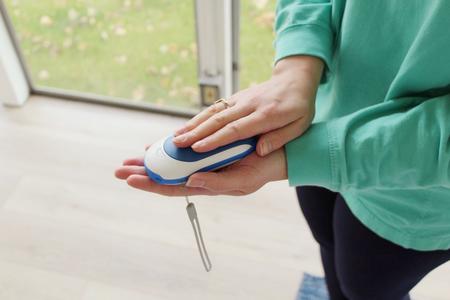
I don't know where you get them I assume the internet, but there's two little devices that you just hold in your hand and they magnetize together And they heat up And so in the morning when you ' re working, walking to work and walking to placement and your hands get really cold, you can just put your hands around these electronic hand warmers and they warm up and then minus a double as portable charges and they are game changer And they're so nice and they make Melbourne winters so much more tolerable So electronic hand warmers, they are amazing
Angelica: They sound actually life changing
Dr Karen: They really are They're so good I can't believe I lived without them It's so good because you charge them to make them work But then they double as portable charges It's just genius
Angelica: So useful
What brings you joy?
Karen: Well, first and foremost, my cat I mean, every cat person is going to say the same thing My cat brings me the most infinite joy ever Seeing my friends and going out and doing things just brings me so much joy Being out in nature, turns out nature is just really good for you
You look at green stuff and it does something really good for your noggin But also traveling, I feel one of the benefits of our job is that we have time to travel and I feel extremely fortunate to be able to travel But leaving the country, leaving the city and traveling in any way you can and whenever you can just brings me so much joy, fills up my cup above and beyond anything else
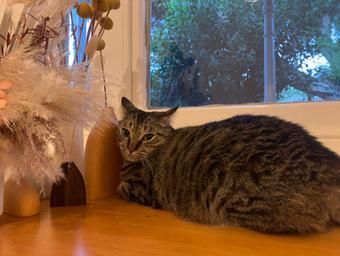
I just love it I would travel as much as I could whenever I could save up all my pennies to travel So I think traveling brings me the most joy
Angelica: And we definitely need cat footage for the magazine

Dr Karen: Deal Oh, I don't know if I have any, I'll say Seven billion as of the past 24 hours, correct?
Angelica: I have two cats and I literally have 14 , 000 photos on my phone
Dr Karen: Oh, amazing Oh, I'm so jealous I've just got one and I don't think she wants a friend, but I love that
Angelica: She wants all your attention Just a few more questions
So what's changed your perspective of the world?
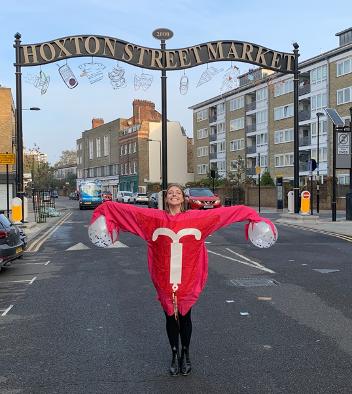
Dr Karen: Oh, great question Just in general, my perspective of the world Great question I did a Masters of Sexual Health, I mentioned earlier, in the UK I reckon that was one of the best things I could have done Because I was so passionate about sexual health, contraception, abortion, and it just gave a view of the world in a totally different way And I just think it was an invaluable experience
I think sometimes you have a really myopic, like really short-sighted view of health in the world when you just grow up in a town you know, a town in Melbourne But just to kind of broaden my sense of the world, I think that was really great There's a book called Divided by Annabelle Sowemimo, and she is a UK-based sexual health doctor, actually, when she wrote a book about racial biases in medicine and racism in medicine And I think it's just a phenomenal, phenomenal, phenomenal book, especially working as doctors I think it's a really imperative book to read I really can't recommend it enough
Angelica: And last question
What's one message you want to leave for medical students?
Dr Karen: Your social life is the most important thing I'll finish up with a story on that note, mostly because after this I'm meeting a friend for brunch And this friend, we went to a gig back in, I would say 2011, 2012 So earlier stages of med school, we ' re going for brunch now because we ' re both doctors with a flexible schedule and it's a Tuesday morning
I love that But it was the time when all monsters and men were hitting the charts And it was a song, Little God of Monsters and Men It was, it was the, yes, yes, yes, yes And, and then we just, you know, at the time, their top song was like the top songs in the world in 2011 That's when they had that song
I'm just googled it now And they came and we saw their gig and we just loved it It was like the top song at the time And for some reason, the band like hung around afterwards and we hung around afterwards

And then we ended up just hanging out with the band And I remember giving the lead singer like a piggyback around like the gig played, we ' re just like all hanging out on a Tuesday night or something And I must say, I would think I had a fairly good social life in school I was pretty good at balancing things But I remember that night, the band was like, oh yeah, we ' re going out early one night in town, we ' re going to go out, we'll hit the town I don't remember It was like midnight on a Tuesday and me and my friend Gab and we were just like, we ' ve got an exam in a couple of days We've already had a really good night I don't think we can extend the night Like we ' ve got uni at 8am And so we said no We're still, you know, given off one of the Of Monsters and Men members a piggyback and had a really good night
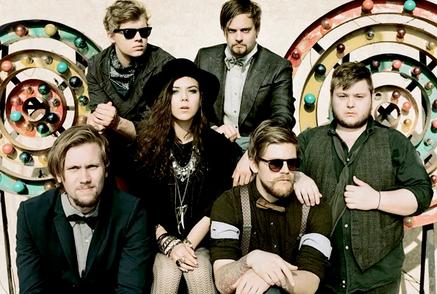
But I think it was all the time And I was like, God damn, I have no idea what that exam was, what lecture was the next day You know, we probably could have just taken that life experience and enjoyed it a bit more And instead of being kind of a great story, it's a kind of hilarious story with a premature punchline But I think it's a really good reminder that you ' re only kind of in your early twenties or late twenties once
And just to enjoy that time and not just let medicine take over your life Again, I should say, I think I had a lot of fun in med school, but you know, just to remember to travel and enjoy and go to see friends and go out and enjoy your life because before, you know, you ' re finished and you ' re just like, oh, well, yeah, these little things would have been fine Yeah
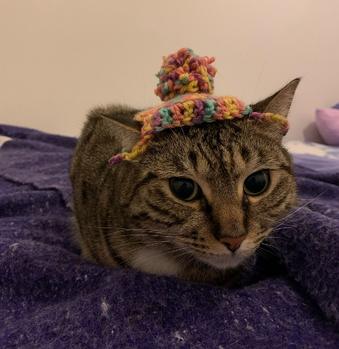
Angelica: And I feel like that's something that's like , oh , we ' ve got classes , we shouldn't sacrifice our time at school and try to balance that with social stuff
Dr Karen: I give a say, it's still a precious gift to be in medical school and, you know, take that seriously and actually, you know, you know, do your classes and turn up and study And, you know, you still do have a responsibility to perform in medical school Of course you do But also to remember that you ' re a person and life skills that you have and life experiences that you have are also going to be really beneficial for your patients as well You have a broader world experience Yeah, for sure

Angelica: So I think I'll leave it there for today Thank you so much for taking the time to do this, Karen
Dr Karen: Thanks for having me And kind of funny to have a podcast on another podcast
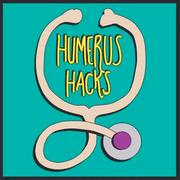
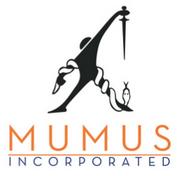
But podcasts are the best, aren't they? I mean, there's so much driving to and from placement There's so much need to just have information And I joke that people in medical school love learning at a baseline So we ' re always we ' re always a target audience for podcasts, aren't we? But, you know, if I could say one final thing, which is how I finish my own podcast, which is to have fun and not stress, prioritize yourself, prioritize fun and enjoyment and entertainment, because it's a marathon, not a race And you have got to look after yourself first
Angelica: yes, for sure!
Karen: Thanks so much for having me Cheers
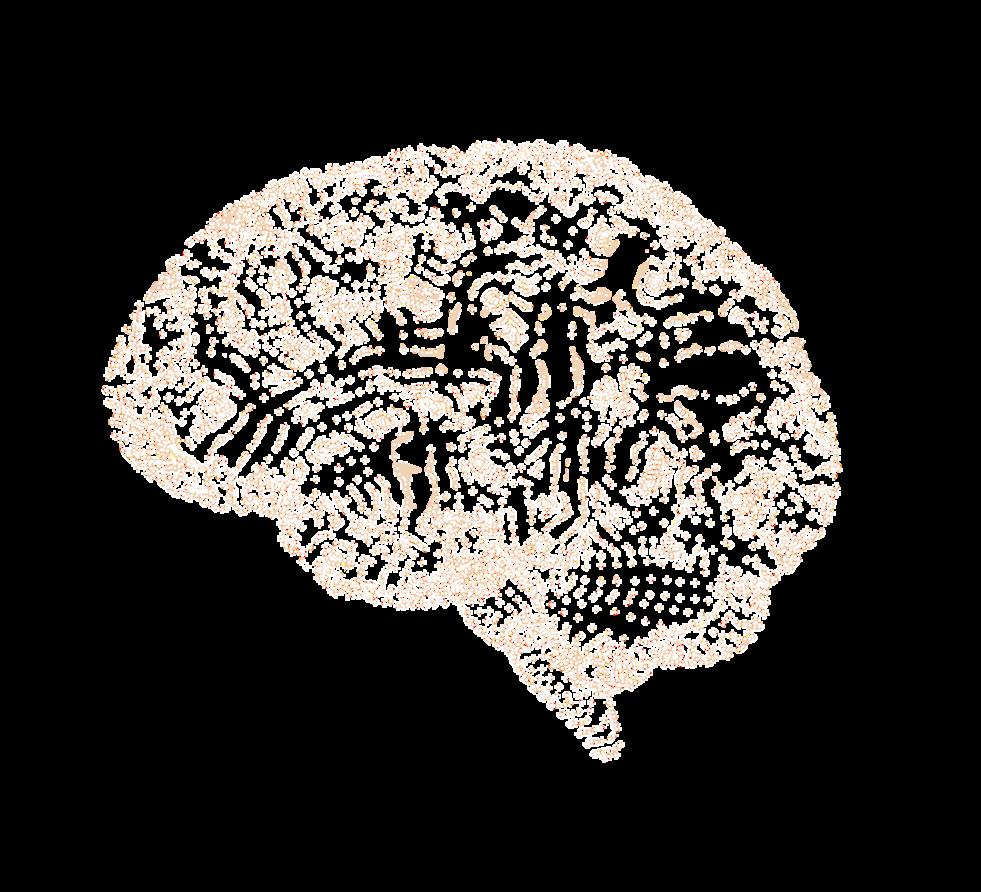
By now, you might have ~heard of ‘The Ossicle,’ MUMUS’ very own Spotify podcast ! If not, don’t worry. Here’s a breakdown of what you ’ re missing out on and why you should be listening !
You might know of the ossicle as the smallest bones of the body. Found in the ear, the ossicle is made up of three bones: the malleus, incus and stapes, and have an important role in transmitting soundwaves to the inner ear, allowing us to hear.
Fig 1 TheAnatomicalOssicle
What you might not know, however, is that MUMUS have their very own Ossicle, a Spotify podcast series, adjoint to the Auricle, where we publish recordings of our ‘Humans of Medicine’ interviews.
For each episode, we interview a remarkable individual involved in the biomedical sphere who is doing remarkable or unconventional things with their degree.
Each interview is neatly packaged in a bite-seized podcast episode readily available on Spotify--perfect for those long commutes to and from placement.
For our most recent interview, we met with another (more famous) podcast group, Humerus Hacks ! Flip back to our Humans of Medicine interview transcript to learn more, or check out The Ossicle on Spotify (under MUMUS Publications !)

I bought it at the airport and planned to skim through it on the plane, but it was too interesting to just skim.The author is unusually skilled at communicating science in an engaging way.
I learnt alot. It has changed the way I eat and will hopefully make me healthier. The young author shares her career path journey. This journey and the simplicity and potential value of the science is inspirational.
I've recommended the book to my family, but no interest there. Although I have got them all eating celery before dinner if offered!
While reading, I did think it would be a good book for medical students - as a way to learn more about nutrition for future patients, science and as an example of great science writing for the public.
Reviewed by Dr Julia Harrison
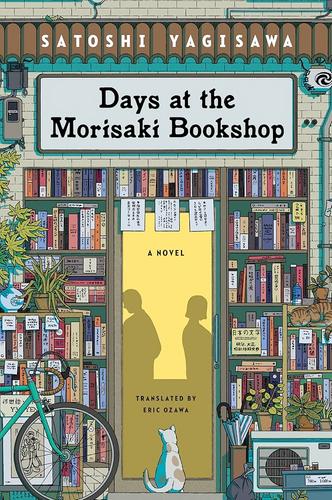
A short read, that appears deceptively light, this book had me sobbing throughout
It follows the story of brokenhearted Takako as she packs up her former life and retreats to the Morisaki bookshop that has been passed through her family for generations
She unravels the story of her eccentric uncle and her mysterious missing aunt, and as the summer fades to autumn, she falls into a new world of wonder and intrigue.
With gorgeous worldbuilding, subtle history lessons and a hint of magical mundanity throughout, the characters of this book will stay with you for a very long time.
Reviewed by Angelica H

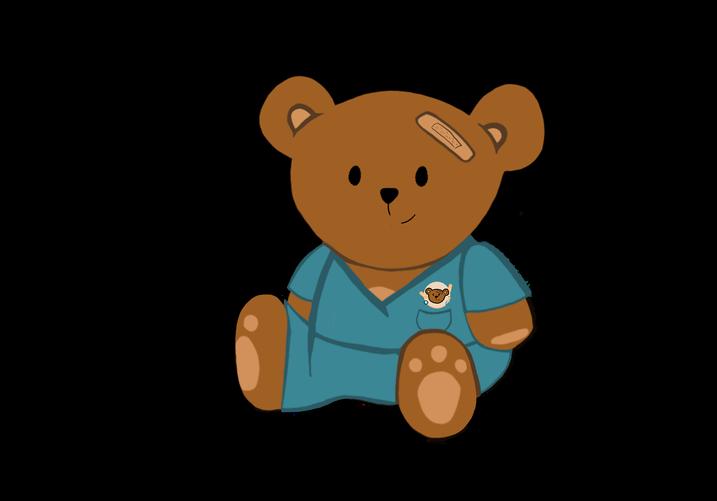
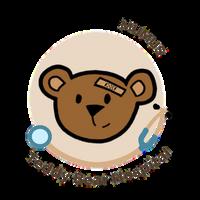
Monash Teddy Bear Hospital has entered its 16th year of reducing white coat anxiety in children across metropolitationand rural Victoria, and 2025 has certainly started with a bear-y big bang! We’re excited to share with you what we ’ ve been up to thus far, and what’s just around the corner!
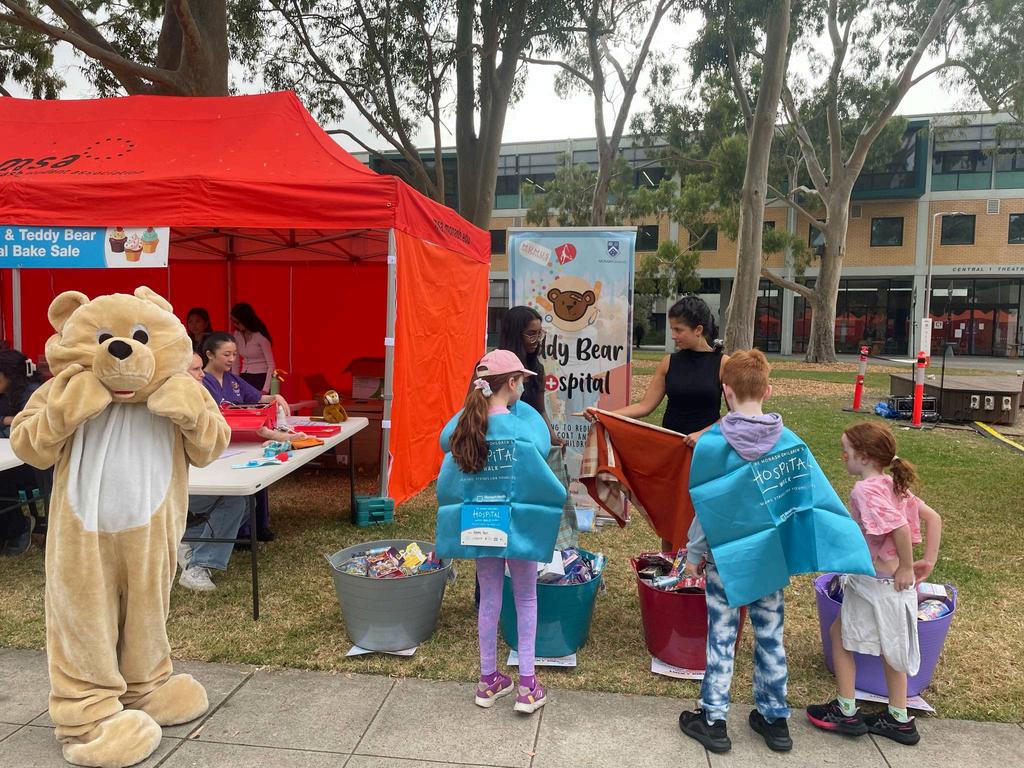
��
Multiple training nights across Melbourne, Bendigo, Mildura and Gippsland regions have welcomed an eager, amazing group of a new 630 volunteers! This year, with our focus to include Primary School visits and Community events with children with disabilities, we provided Disability Training to all our Metropolitan Volunteers

Our Community Team have already engaged heavily with our Local Clayton Community with the Walk for Monash Children’s Hospital, Teddy Bear Playdate and Oakleigh Bunnings Easter Family Night events running with great turnouts! It was amazing seeing children from the local community come together and share their joy with their teddy bears, whilst learning about aspects of the hospital and Medicine!
A new initiative to Teddy Bear Hospital in 2025, we have established Rural Community Events! This year we hope to visit Farmer’s Markets, Libraries and other Community Groups such as sporting teams to have our message reach children in more isolated settings. Our team was very grateful to be invited to Mildura’s Sunraysia Farmer’s Marketwhere we had teddy check-ups, bandaging stations, and health education for all ages and connected with dozens of families in the region. The response was heart arming and reinforced o r commitment to rural outreach.
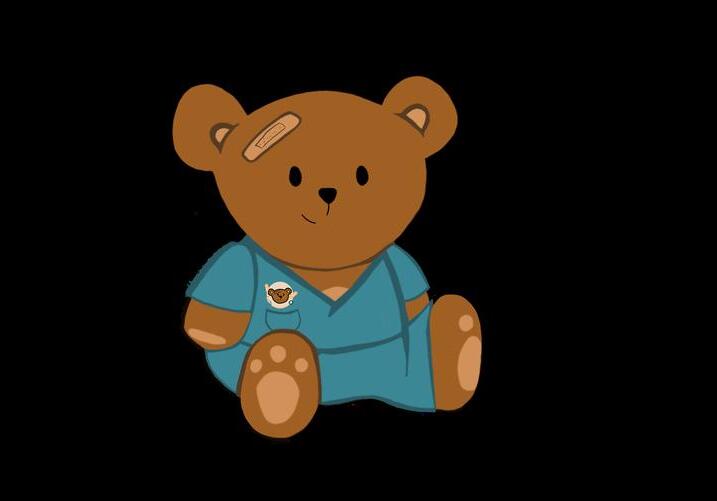


Our Scrub Sale has recently launched with the biggest number of colour options available EVER! We partnered with a local manufacturing company, right here in Victoria, to provide high quality, colourful and joyful scrubs to our volunteers! This year we had colours raging from sage, navy, purple, pink, rhubarb, blue, black and grey.

Big Ted and some of our Teddy Doctors changed careers temporarily to become chefs whipping up some sausages down at Monash Clayton’s local Bunnings – Bunnings Notting Hill! Here we made many friends with the local community and raised funds which will be donated to various children charities!

We’re expanding our reach by planning to visit:
• Banum Warrik Primary School, a school in the Cloverton estate of Kalkallo
• Oonah Aboriginal Health and Community Services
• Specialist Schools that provide education for children with disabilities
These visi ultural safety, accessibil
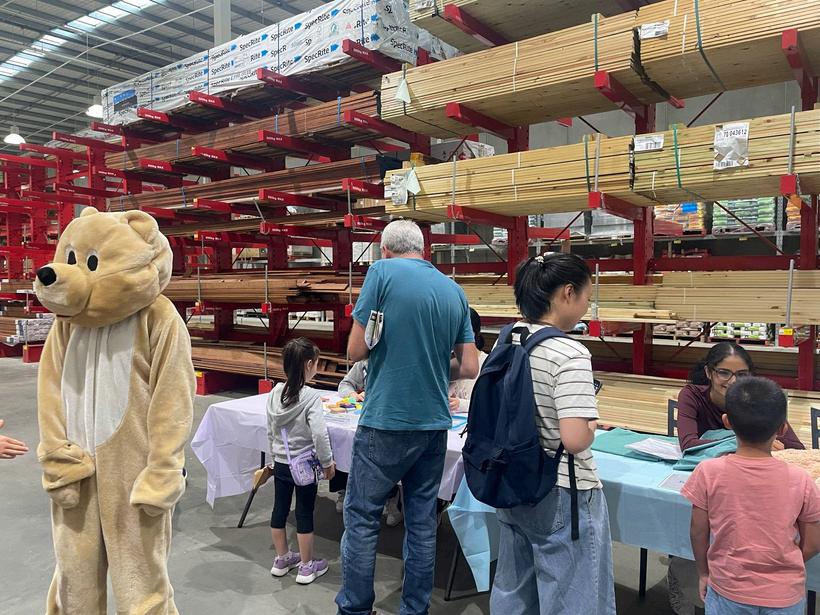
We’re gearing up for a busy term ahead with a packed calendar of primary school events! We’ll be reaching even more students across Melbourne and rural Victoria with over 30 events planned for our Metropolitan Community, and many primary schools across Sale, Mildura, Traralgon, Churchill, Bairnsdale and Bendigo!
So far our teams have already provided positive health education to children at Heany Park Ridge, Jells Park, Warragul, Kangaroo Flat, Araluen and Irymple Primary School as well as Gippsland Grammar! Big Ted certainly knows how to travel quickly around Victoria, and even made the news upon their visit to Kangaroo Flat Primary School!

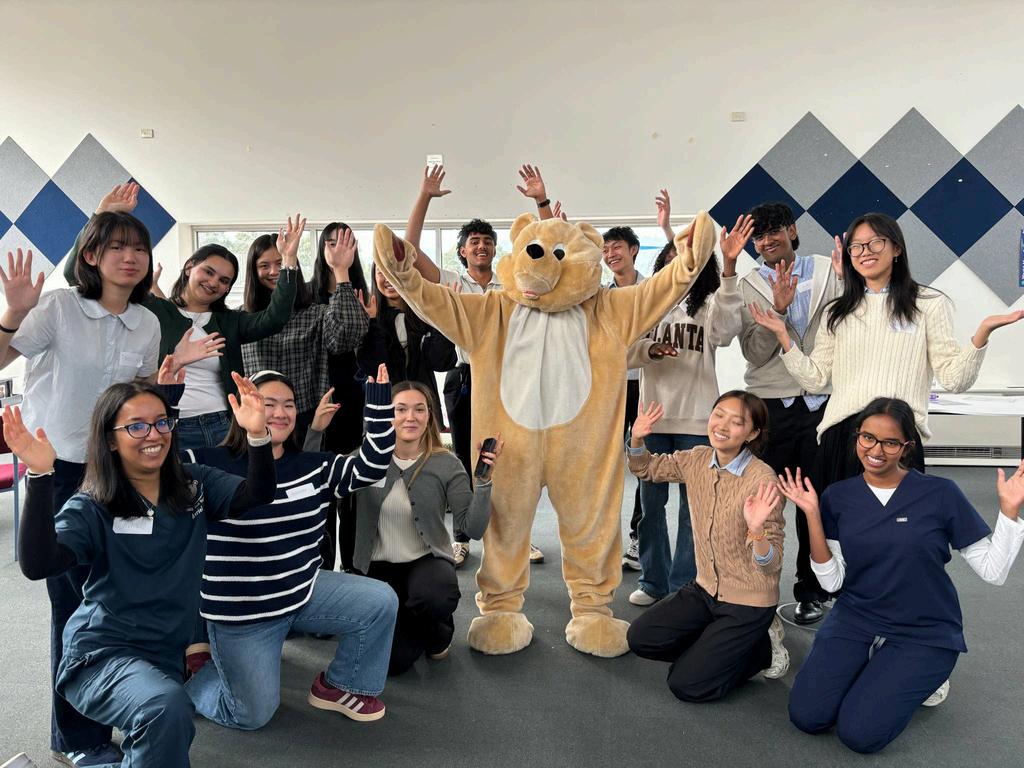
�� Join the Movement
We’re more than just teddy doctors we ’ re building a future where every child feels confident, safe, and heard in healthcare settings. No matter your degree or your year of study, if you enjoy working with children and want to contribute to the movement of establishing a safer, less intimidating healthcare environment for the next generation of children, please see our socials or website about how to volunteer !
Follow us on Instagram and Facebook for updates, photos, and volunteer opportunities. And keep an eye out for our merchandise drops!
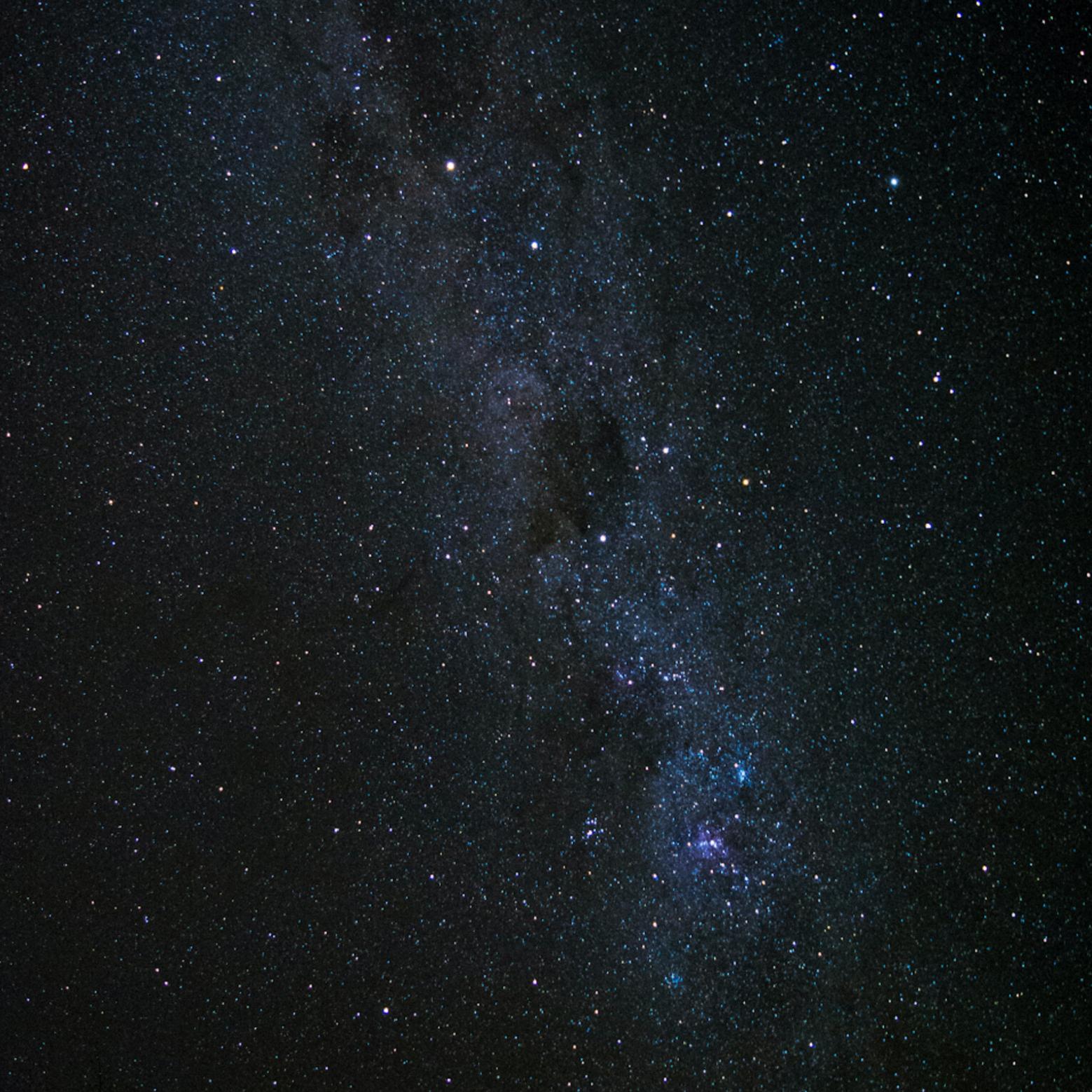
The Monash Medical Jazz Band has welcomed new and old members alike, and with incredible enthusiasm kicked off 2025 with some grooves and bangers!
Led by the ever-talented Josh Choong, the band had 3 months of preparation akin to the Whiplash band rehearsals (kidding), with lots of laughs, snacks, and out of tune notes along the way �� for what turned out to be a spectacular sold-out concert on the 17th of May, cheekily titled “Why Did the Chicken Cross the Street?” For many of our members this was their first concert with the band, and we are incredibly proud of everyone for putting on such a great show And of course, we extend our gratitude to our audience and those working in the background who have supported us along the way.
The band has many exciting gigs coming up throughout the year, so make sure to keep your ears peeled!
With much anticipation, Sara and Jack 2025 Co-Chairs
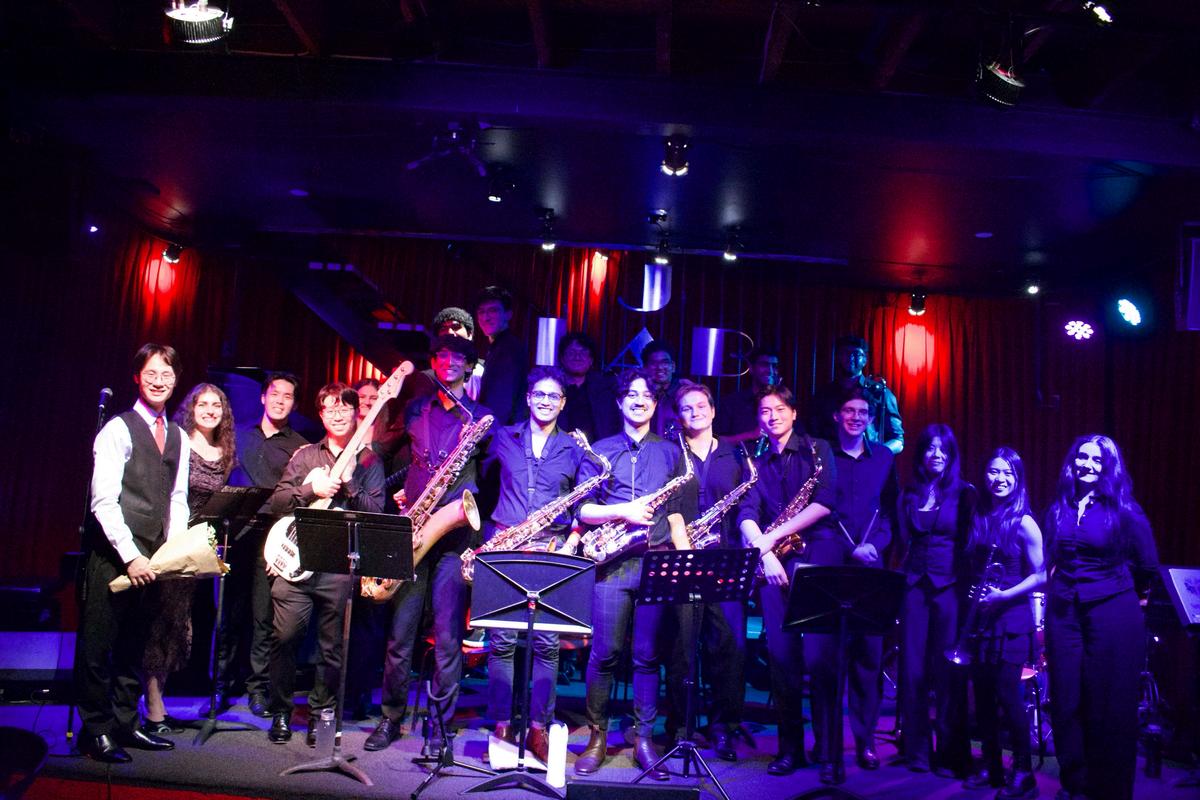
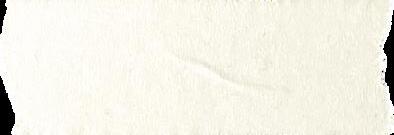
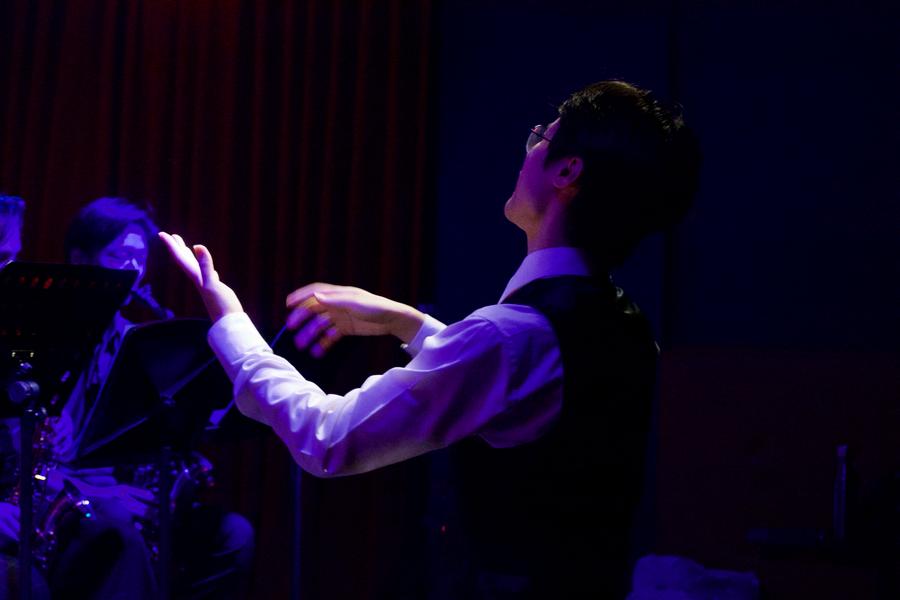
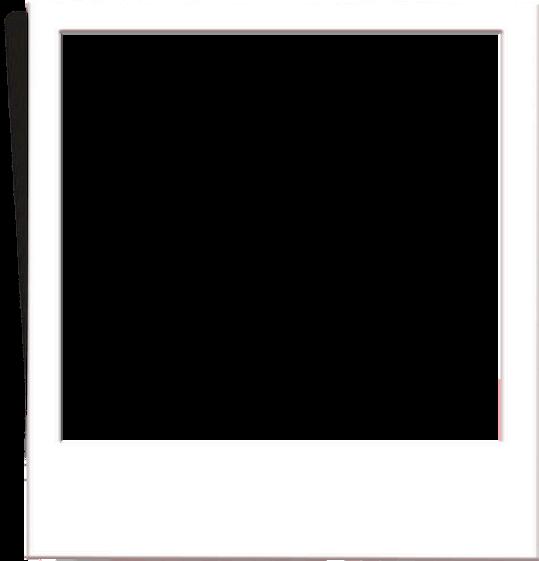

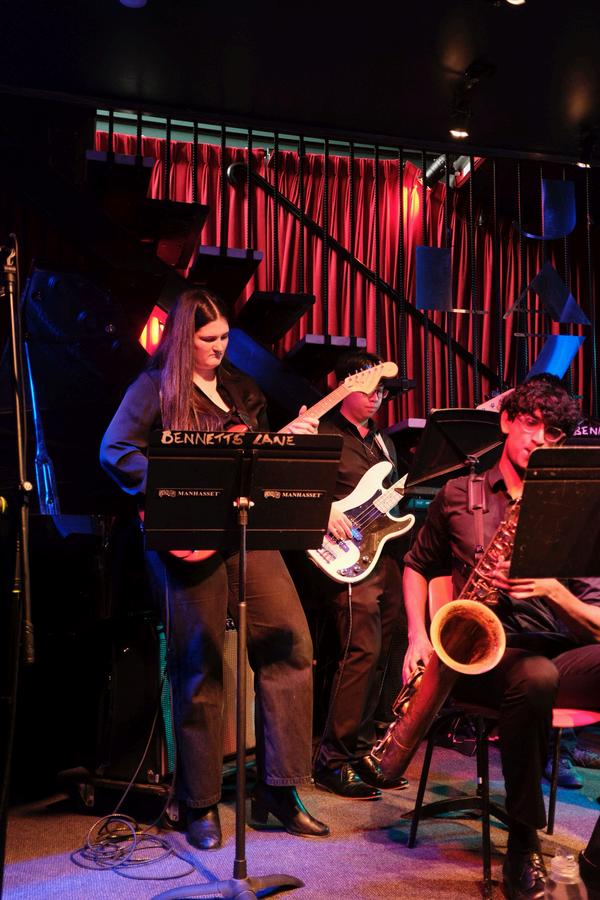


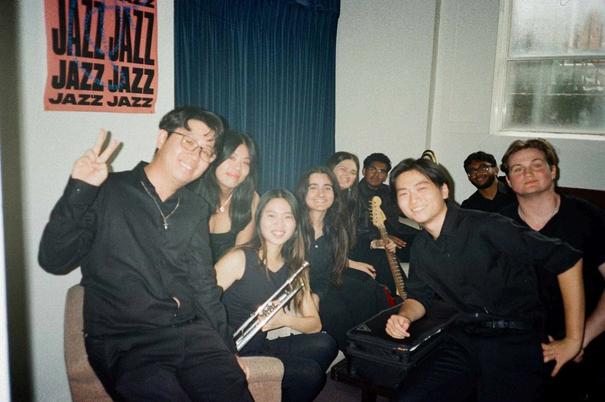
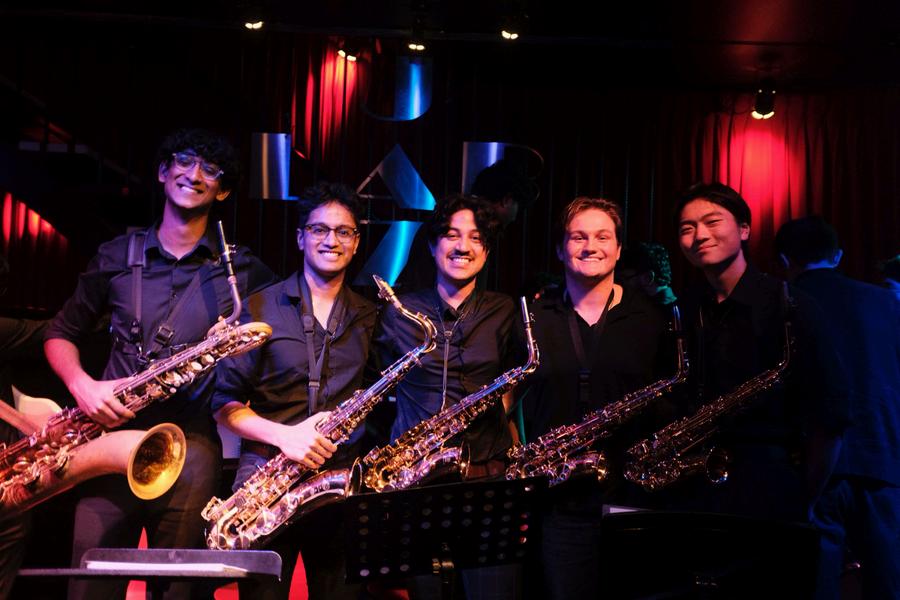
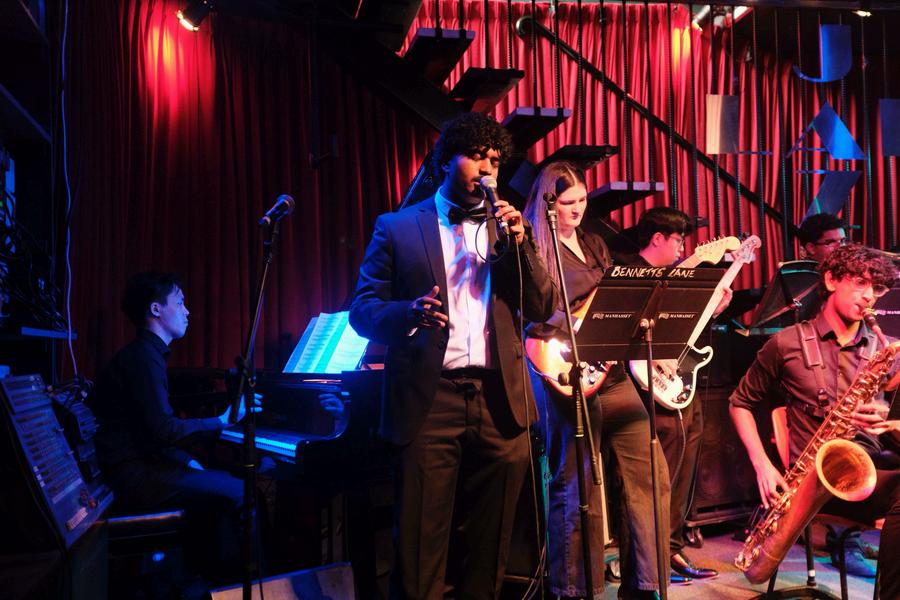

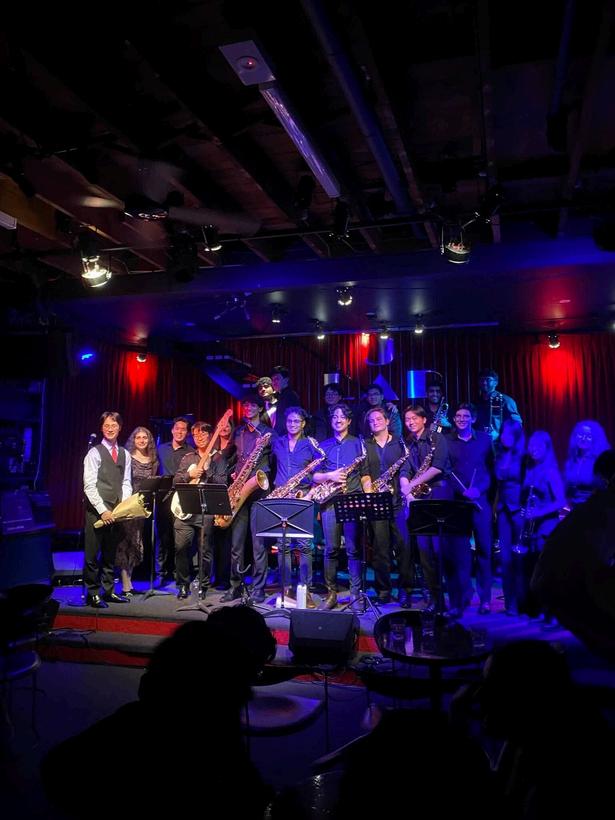



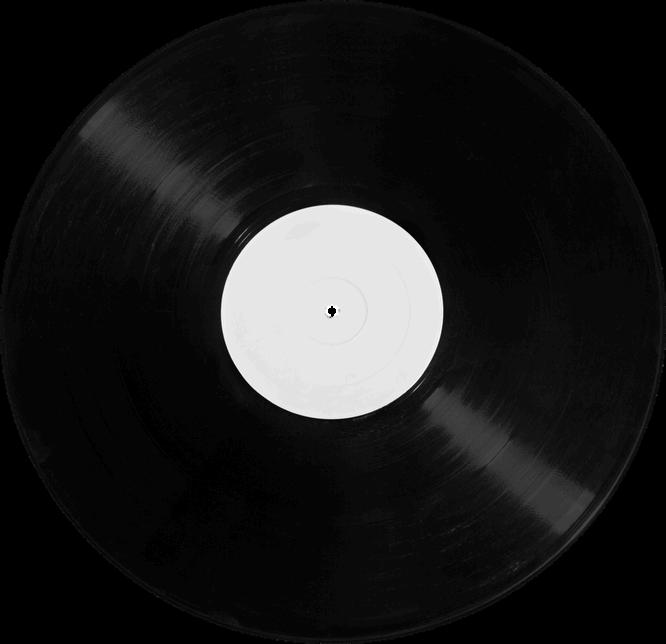
Studying can be miserable (especially if you ’ re doing it alone) and getting in the right headspace is something I cannot do without headphones and the right music

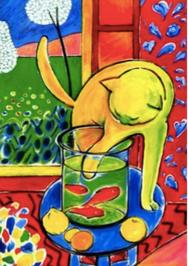
Berlioz.
If Matisse made house music (which might possibly be the best Spotify bio of all time), a mostly instrumental house-jazz fusion, it feels like lo-fi beats to relax and study to all grown up and a little bit more upbeat (I’m very prone to a midstudy session nap) His newest album, ‘Open this Wall’ is like a spiel of positive affirmations, keeping you motivated and ensuring you don’t lose all hope in your ability to memorise every drug suffix and method of action (my personal downfall)
In addition to beautiful music, the visuals used to promote the newest album on Instagram are such gorgeous animations that are truly transportive and if ever you are rotting and doomscrolling, do yourself a favour and have a scroll through the Berlioz Instagram page
Another realm of study music that I believe to be superior is the not so humble movie score One of my favourites is the Amelie soundtrack by Yann Tiersen Whilst I have yet to see the movie (despite it being on my list for years), the score is so beautiful and feels do melodramatic, the perfect study mood If its raining and dark outside, this is the one to go with
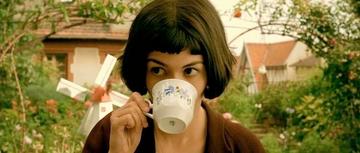
The benefit of both of these is that not only are they beautifully exquisite, they strike the perfect balance of continuity without monotony, making them perfect for productivity
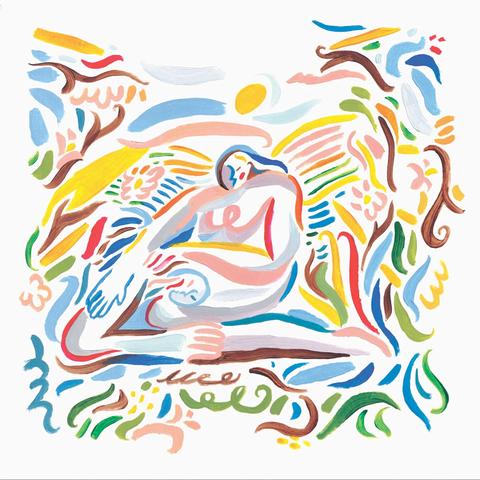



In July I went to see The Last Dinner Party and I need you to take me seriously when I say my life was changed An all-girl indie rock group, their energy is unmatched and each song is full of the most beautiful vocals and incredible instrumentation Their song Beautiful Boy’ contains so many powerful metaphors for what it is like to be a woman in today’s society, and as if that wasn ’ t enough it starts with the most ethereal flute solo This gives a moment to appreciate that their badass, lead rock guitarist, Emily Rogers, is also an angel playing the flute
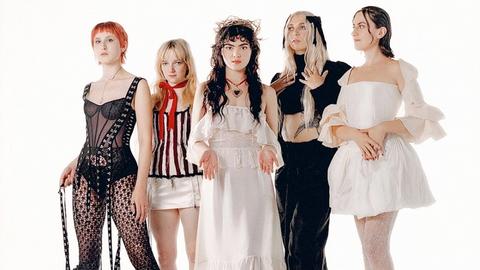
Their live cover of “This Town Ain’t Big Enough for the Both of Us’ by Sparks showcased Abigail Morris’ exquisite vocal control (especially impressive in the higher range) and stage presence, not to mention the chemistry between the band Excitingly, this has just been released ahead of their upcoming ‘Covers and Acoustics’ album Unfortunately, I feel it does not quite live up to the dramatic explosiveness that was the live cover but never the less, it is still a good listen The titular first song of the album ‘Prelude to Ecstasy is a wonderfully dramatic orchestral piece, well-suited to the baroque aesthetic that The Last Dinner Party have cultivated, and truly is a magnificent prelude to the ecstasy that is listening to the rest of the album I cannot recommend them strongly enough
Love Local!
In a similar realm as The Last Dinner Party, Teen Jesus and the Jean Teasers are another powerful allgirl rock group from Australia Their song ‘Girl Sports is the perfect angry feminist song, encapsulating so many of the ridiculously common dismissals and microaggressions women experience Screaming along to this song is a safe, surefire way of channelling all your anger The lyric ‘don’t get me wrong you ’ re pretty good for a girl band’ is just so perfect because they ARE SO DAMN GOOD and it is so irrelevant to their gender Another incredible live act, they have so much energy and the live guitar solos are something else
